In both gaming and film, FLINTA* perspectives have long been marginalised, objectified, pushed to the sidelines or even made invisible. But in the intermediate worlds of game engines, stories are flickering into existence, wanting to be told – stories of players, fighters and dreamers. The maps are drawn, the rules are set? But who says they can’t be rewritten? Machinima – the cyborg among film genres – is, if you will, a democratic instrument of filmmaking. Originating from gaming culture, the genre presents itself as an experimental, autonomous and rebellious film form that questions and breaks with traditional production methods. It is low-threshold, often DIY, hybrid and inherently collaborative. And despite this potential, the gaming worlds themselves – their designs, engines, interfaces, codes – remain predominantly male, white, cis and heteronormative.
This is where our film series RECLAIM THE FRAME comes in. The short film programme brings together five works by FLINTA* artists who use the tools of the gaming industry in an empowering way to give voice to their perspectives, their ideas, their anger. They expose consumption as a form of control, write mythical counter-narratives and question who has power over spaces, bodies and the future. The filmmakers turn away from the roles assigned to them and shift the axes of power: from consumer to creator, from object to subject, from victim to hero.
Last year’s film series OUR SCREENS offered an overview of the spectrum of films created within and inspired by game engines, showcasing the diverse creative potential of this young interface between gaming culture and filmmaking. Now we are focusing on those who were not intended to be part of these worlds: FLINTA* artists visibly traverse digital worlds, leaving behind cracks and disruptions – sowing new paths.
DON’T LEAVE ME!
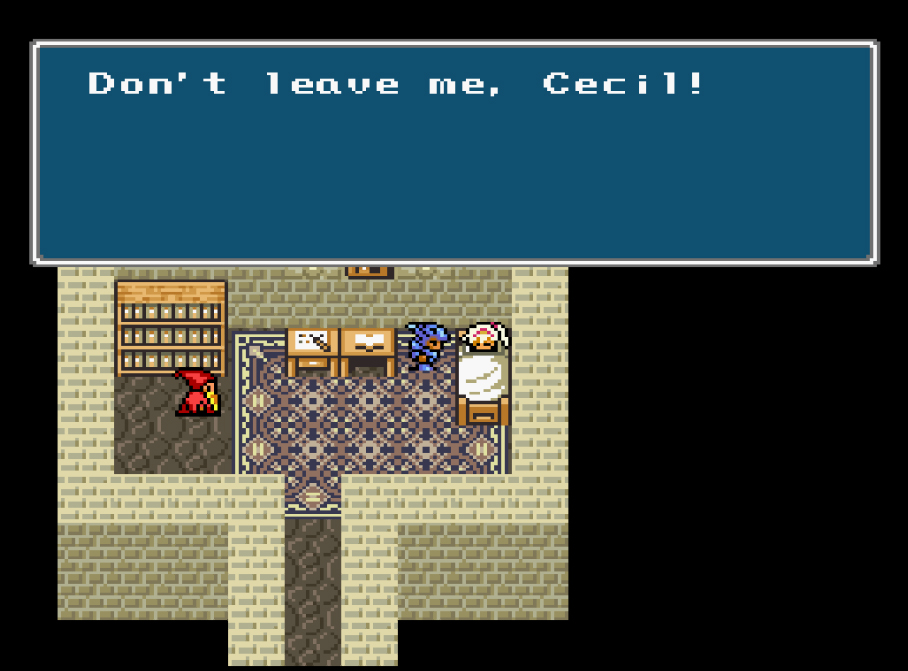
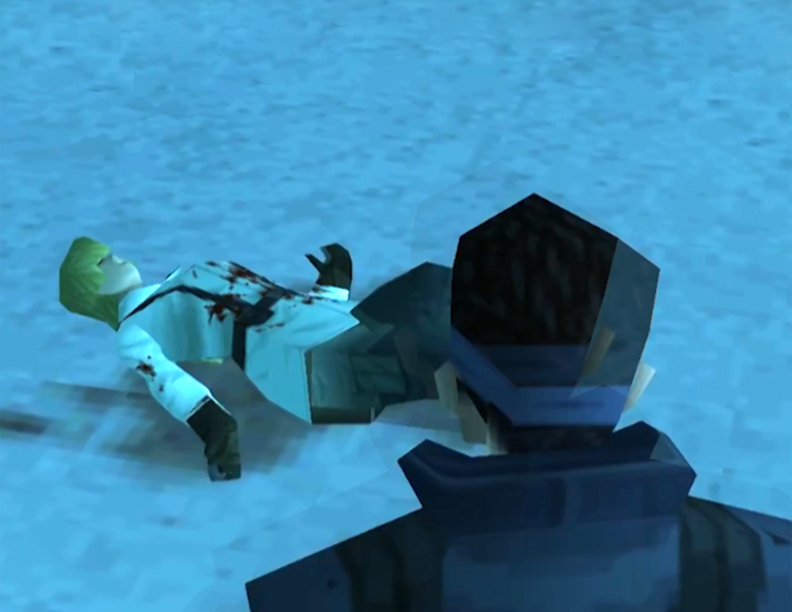
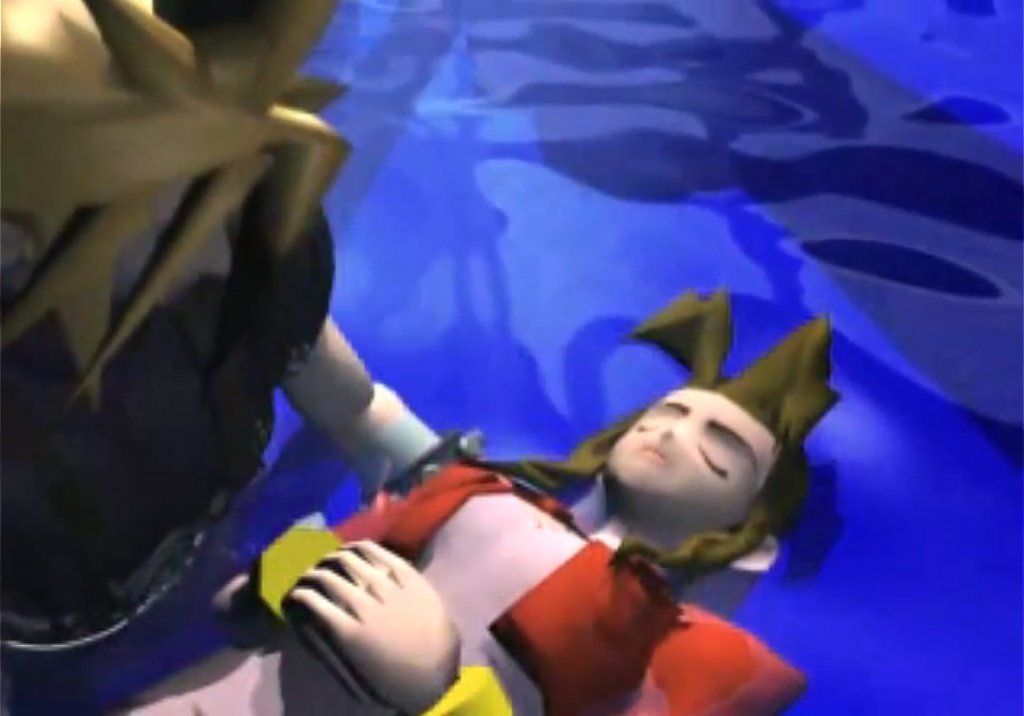
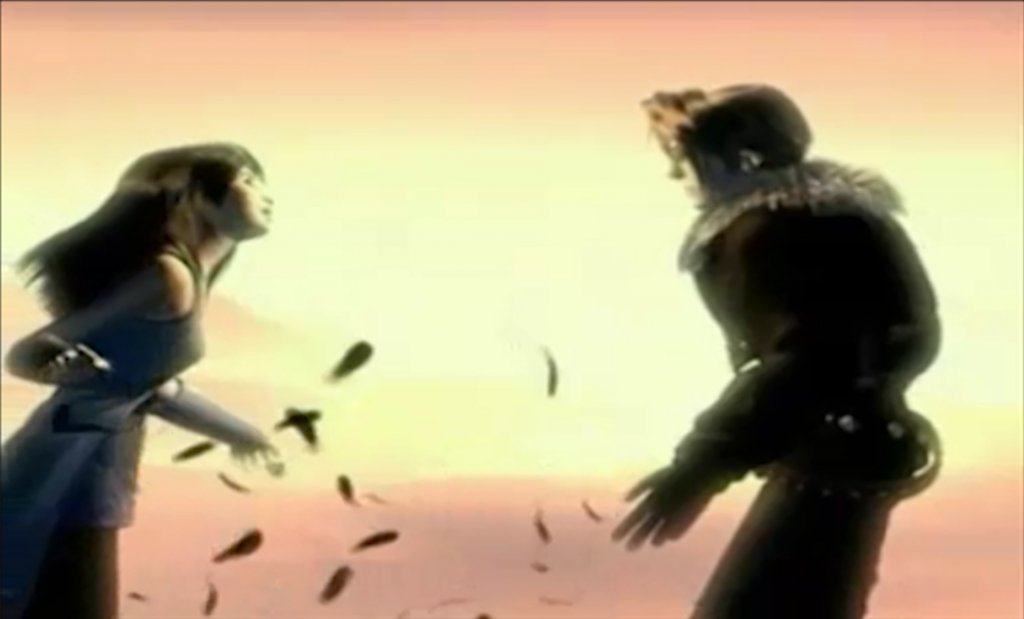
US 2011, D: Angela Washko, 06:15’, OV, File
Angela Washko’s DON’T LEAVE ME! is a dense mash-up of scenes from various computer games such as Final Fantasy, Yalkyrie Profile and Metal Gear – role-playing games that Washko played regularly in her childhood. The collage addresses the stereotypical role of female avatars, who are often portrayed as helpless characters who can only be saved by the male hero. DON’T LEAVE ME! exaggerates this attribution and is an attempt to make female characters visible as complex subjects.
THIS BITCH AIN’T FREE

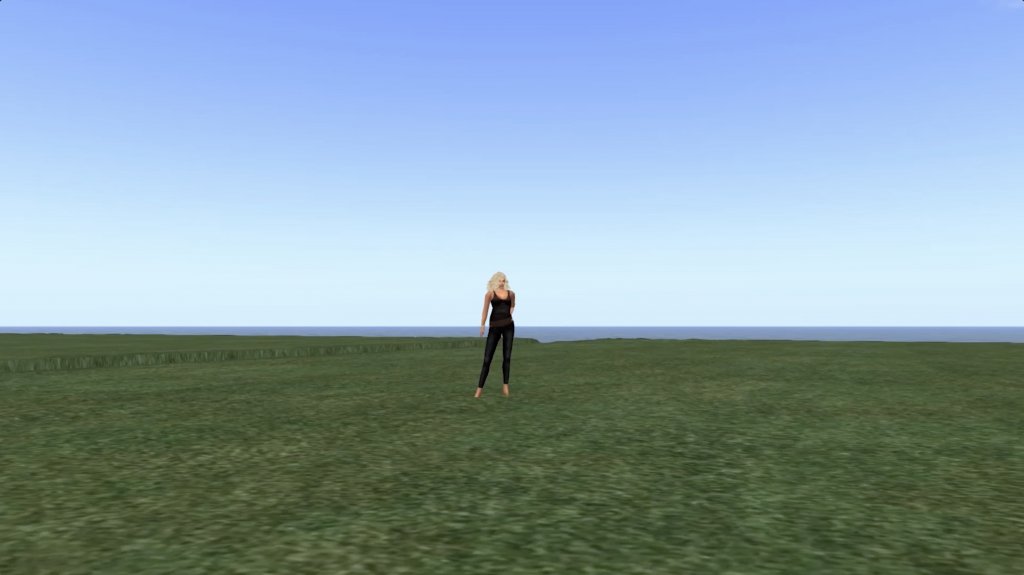
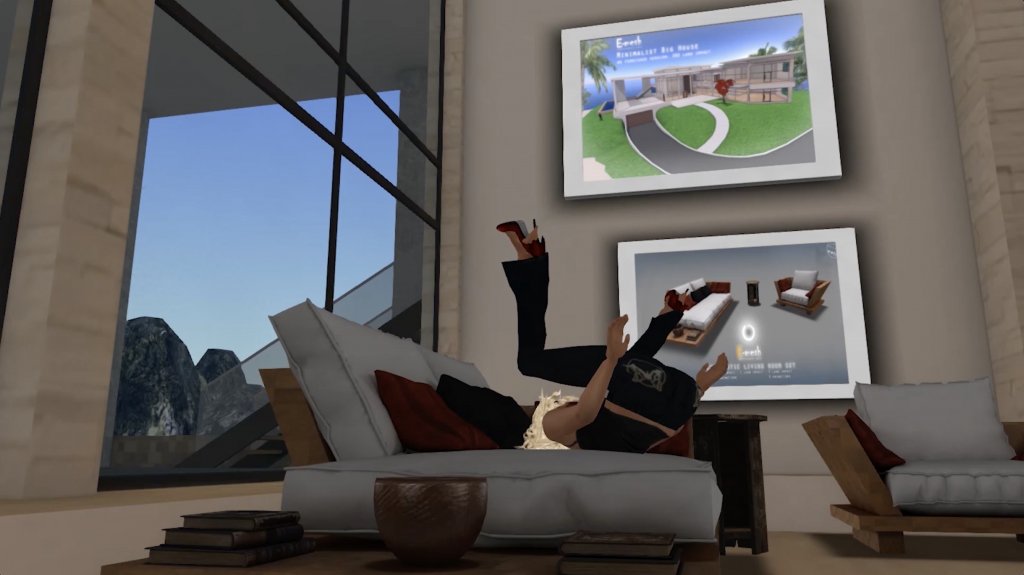
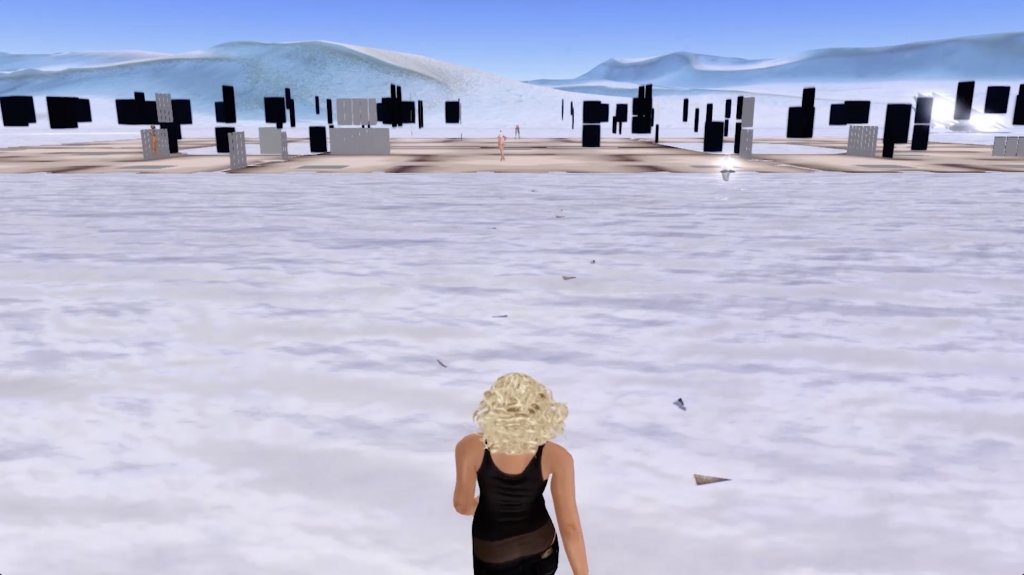
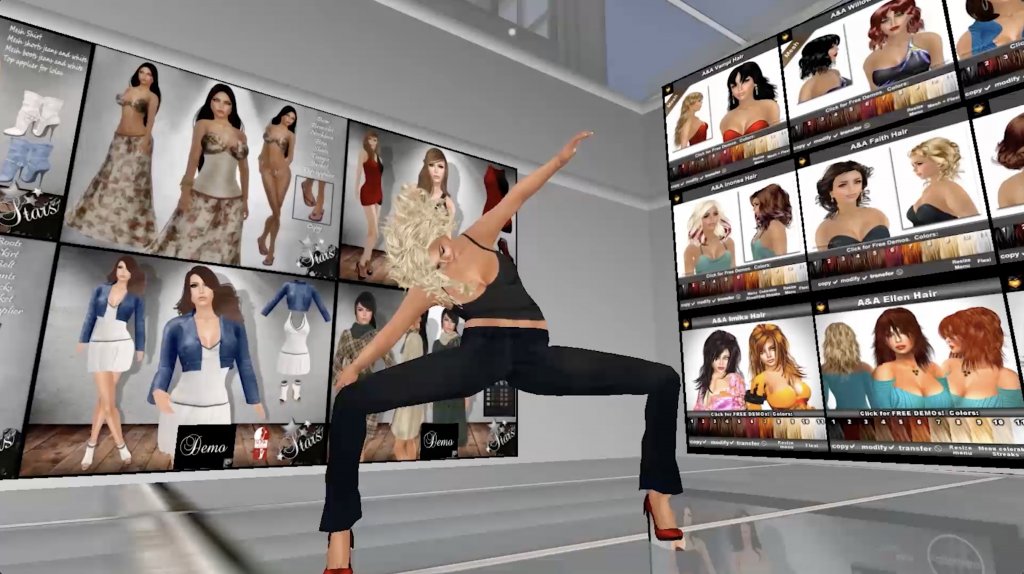
AU 2019, D: Georgie Roxby Smith, 05:07’, OV, File
Georgie Roxby Smith sends her avatar through the virtual, deserted consumer world of the once very popular online game Second Life, which has its own economy and in which players can build their virtual identities. The avatar runs, falls, glides and glitches through the digital ghost town, driven by the desire for a better life. In the rush and carnival of empty capitalism, patriarchal constraints and questions of sexual self-determination are revealed. An endless loop of desire.
A BRONZE ANWIL FALLS TO EARTH
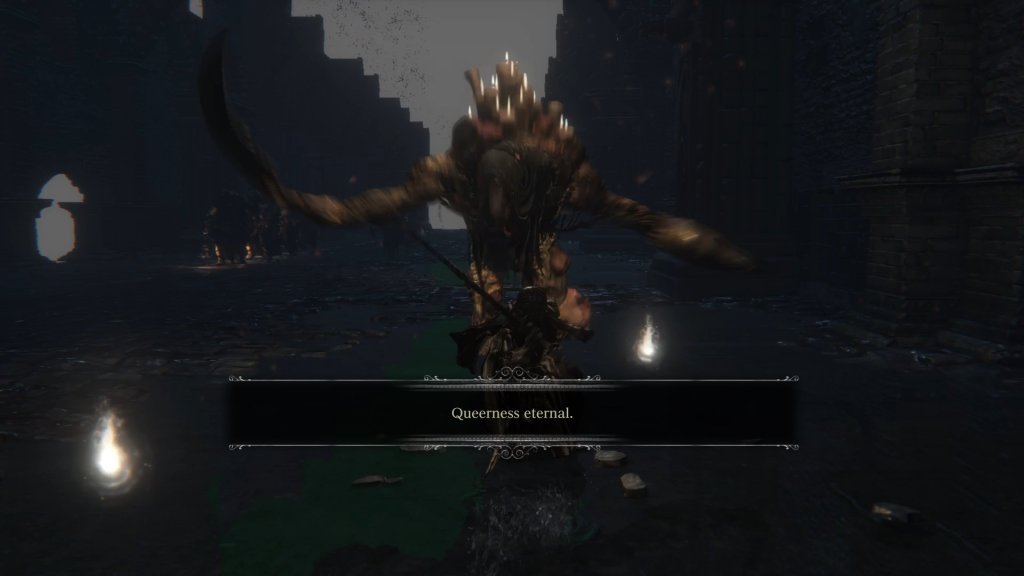
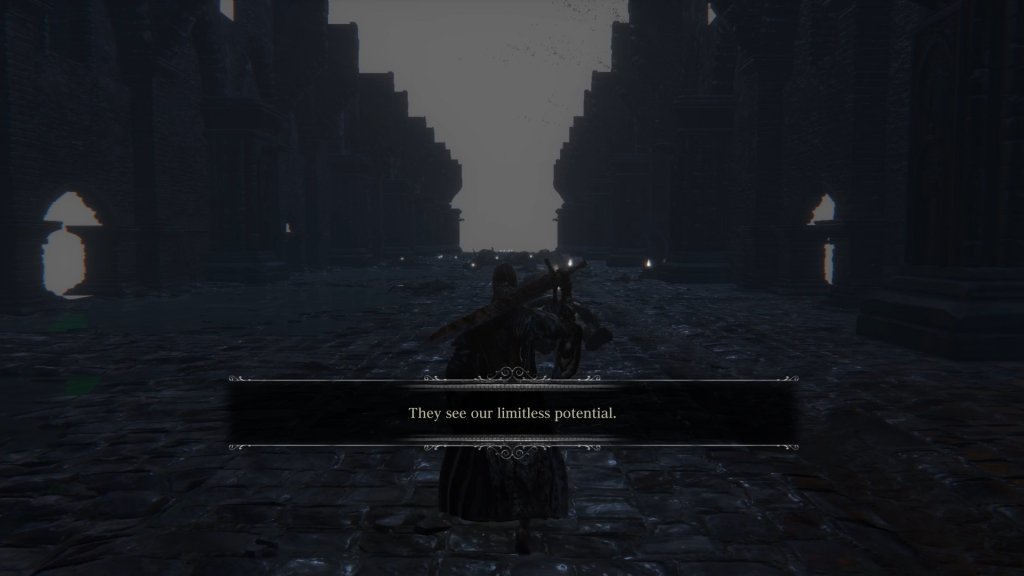
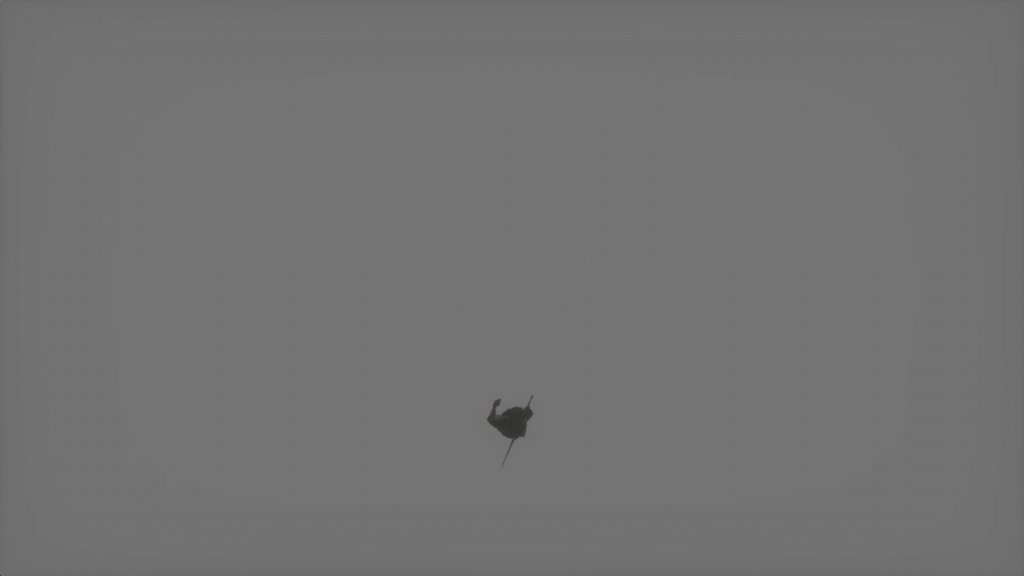
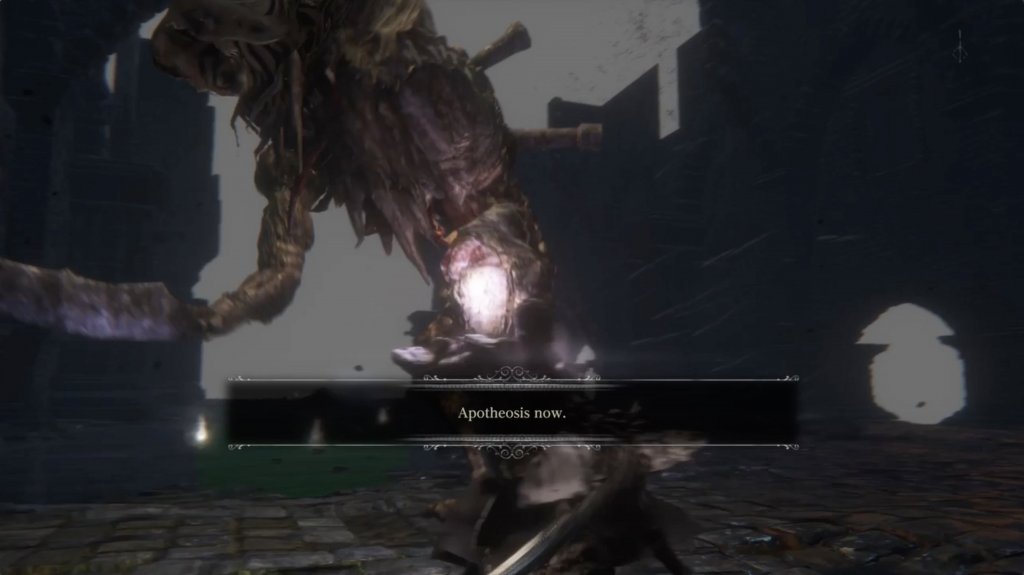
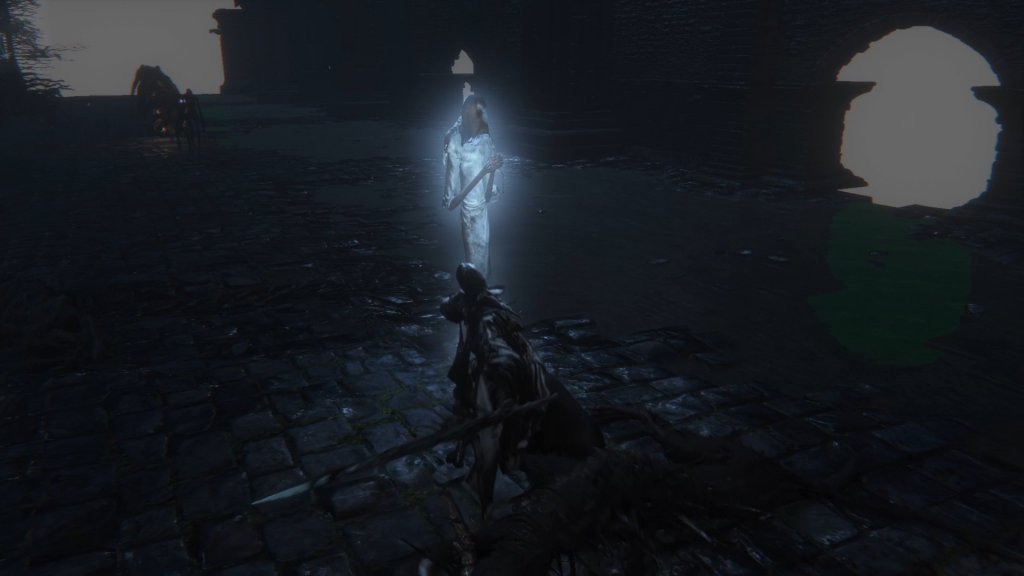
US 2023, D: Carson Lynn, 06:32’, OV, File
In A BRONZE ANWIL FALLS TO EARTH, Carson Lynn transforms the dark and violent world of the role-playing game Bloodborne into a setting of queer suffering, defiance and resistance against oppressive forces. The film is created directly within the game and while playing: in the logic of a Let’s Play, we follow a lone warrior in the setting of the gothic-looking, cursed city of Yharnam, who, framed by Greek mythology, fights the proxy battle of the LGBTQIA+ community there.
THREE MANIPULATIONS
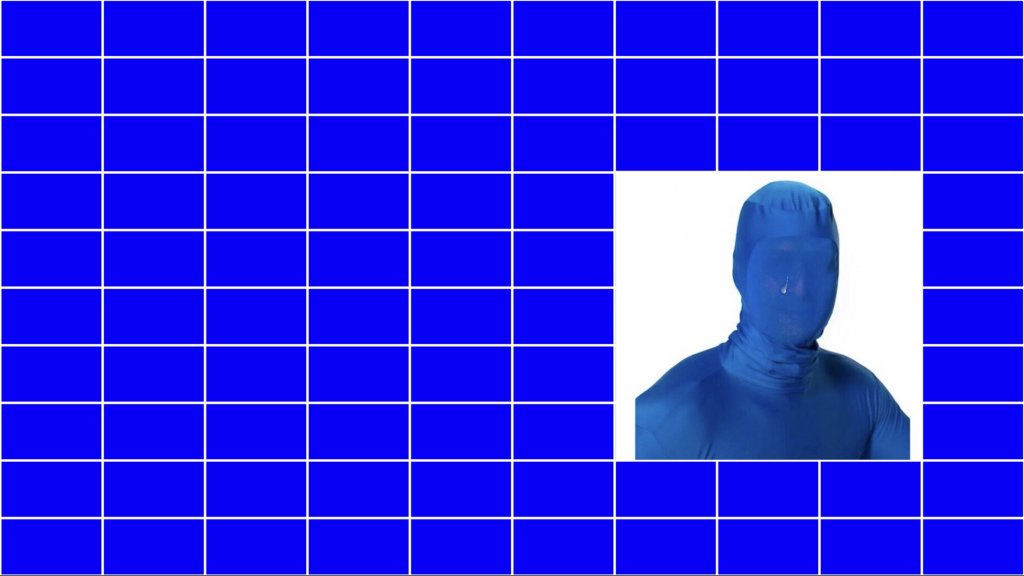
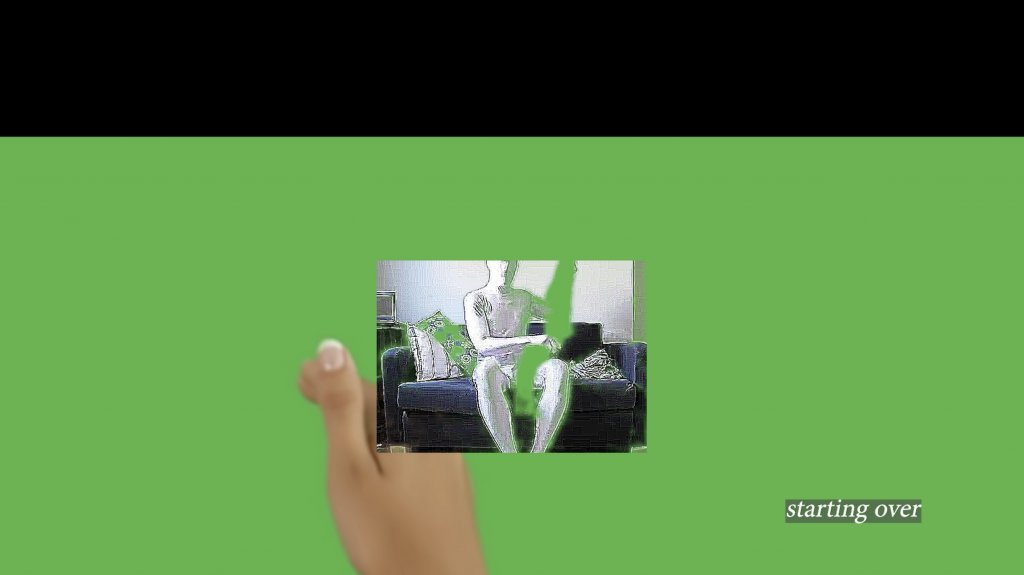
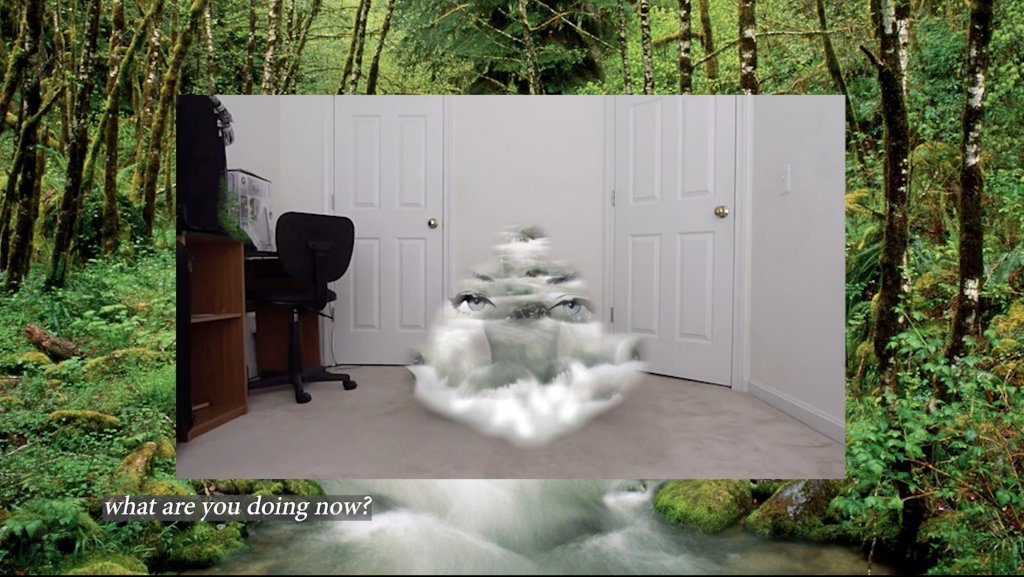
US 2020, D: Kara Güt, 9:38’, OV, File
Who is talking to whom here? The gamer with the game engine, with a chat acquaintance, or ultimately with themselves? In THREE MANIPULATIONS, we witness how two anonymous entities attempt to interact with each other and provoke intimacy in an otherworldly, digital foreplay. Kara Güt’s encrypted video performance reveals the gap between self and others, original and copy, reality and fantasy.
THE MARTIAN WORD FOR WORLD IS MOTHER







GB 2022, D: Alice Bucknell, 40’, OV, File
In THE MARTIAN WORD FOR WORLD IS MOTHER, Alice Bucknell outlines three future scenarios for Mars, exploring political, ecological, economic, metaphysical and linguistic aspects. The project is based on a collaborative, research-based practice: Bucknell worked with anthropologists, astronomers, space lawyers and linguists and drew inspiration from Donna Haraway’s feminist theories and Ursula K. Le Guin’s science fiction. We see precise 3D world-building and the use of artificial intelligence – the script was co-authored with the language AI GPT-3. A cinematic landscape of thought in which colonial, capitalist and patriarchal patterns are questioned and Mars is understood not as a territory to be conquered, but as a living counterpart.
| So 21.09 2025 | Schaubühne Lindenfels |
| 5 PM | € 7,50 (6,50 reduced) |
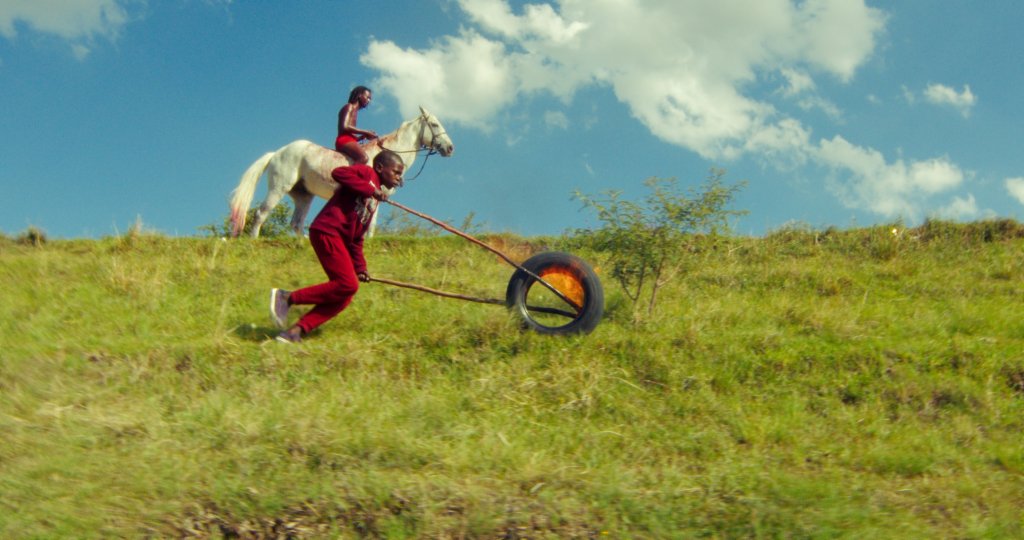
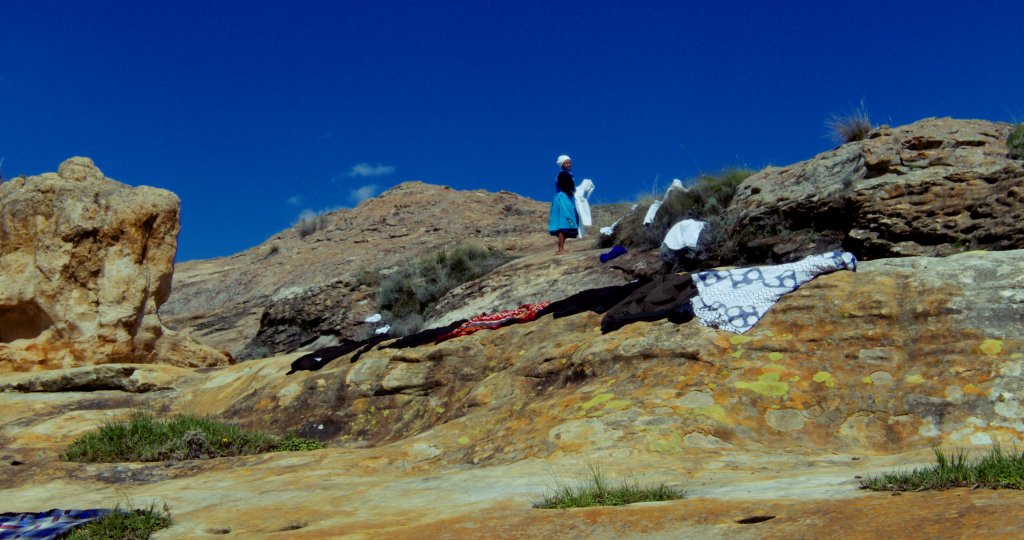
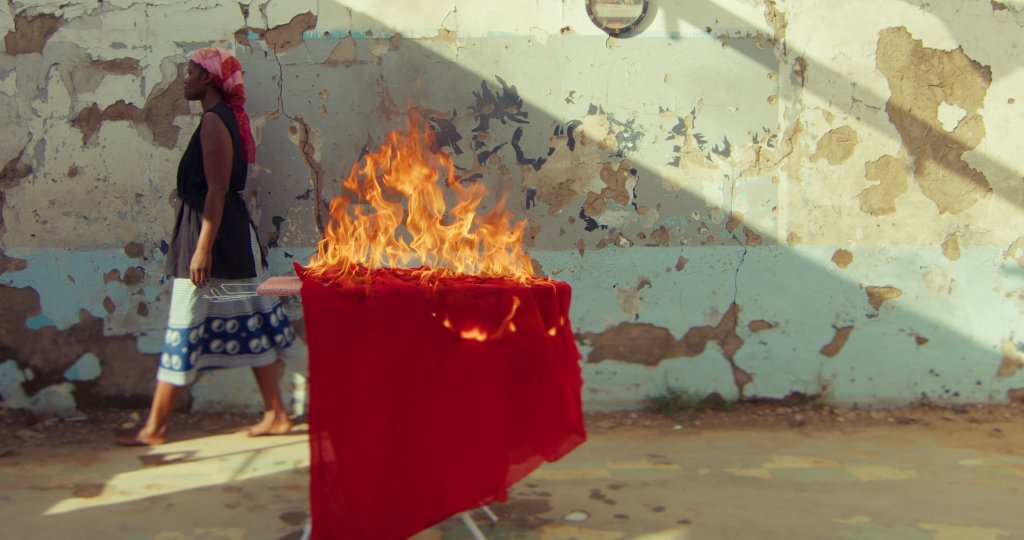
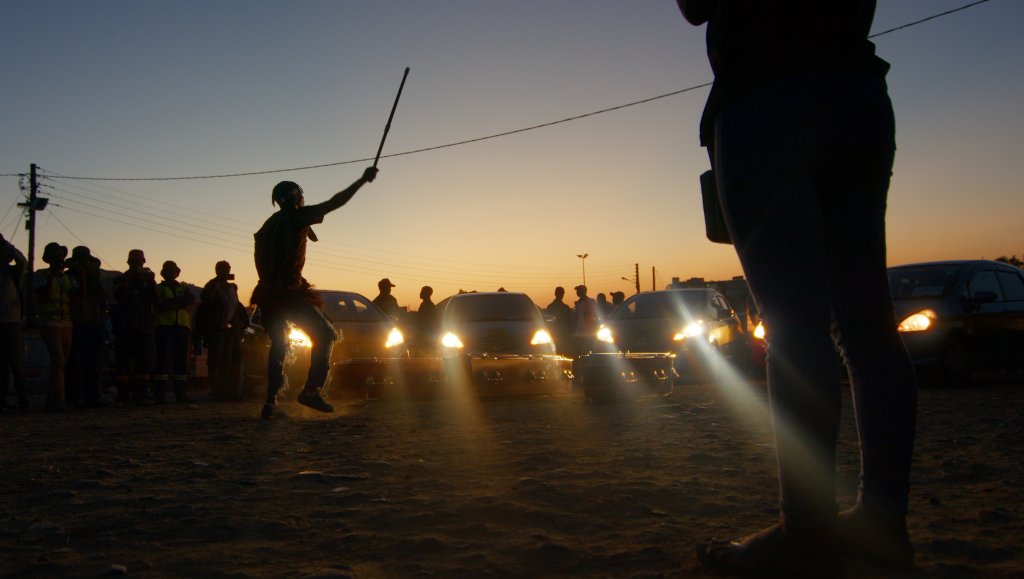
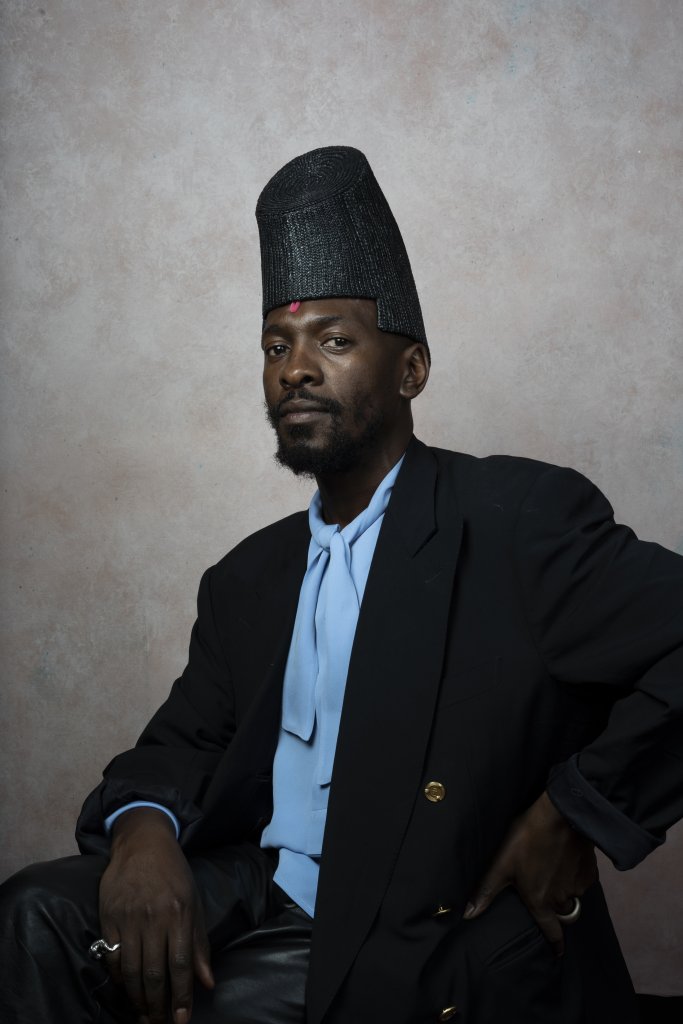
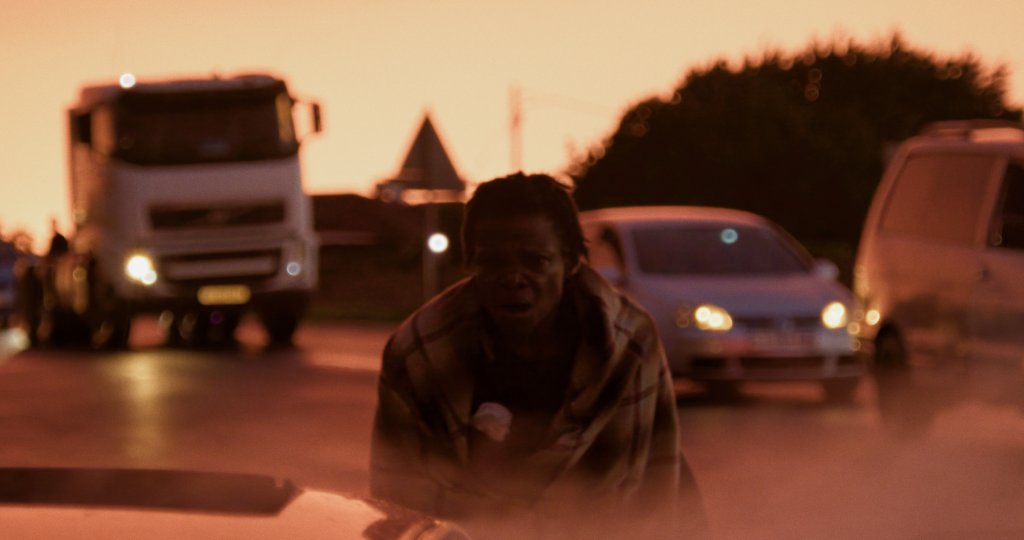
FR/LS/DE/QA/SA 2025, D: Lemohang Mosese, A: Siphiwe Nzima, Sobo Bernard, Mochesane Edwin Kotsoane, Rehauhetsoe Kotsoane, 88′, OV with English subtitles, DCP
A long, red ribbon of fabric fluttering through the mountainous landscape of Lesotho. This blood-soaked motif is a kind of underlying mood or main character in the film – it combines violence and beauty. Alongside this, we see other characters: a father tilling the soil with his son, a puppeteer who works as a teacher, an 80s BMW model rolling ominously through the streets, and an angry woman barking against her fate. Parallel to the images, we hear an autobiographical narrative by Lemohang Mosese from off-screen. Based on his experiences between Lesotho and Berlin, he speaks in poetic stories about growing up, about home as seen from exile, about the Ubuntu philosophy of southern Africa. The film is an impressive re-enactment of a possible future that feeds on a connection to the roots of the past.
| Sun 21.09 2025 | Schaubühne Lindenfels |
| 7 PM | € 7,50 (6,50 reduced) |
Trailer
ARCHIVE | Feministische Gegengeschichten
GIRLS IN UNIFORM
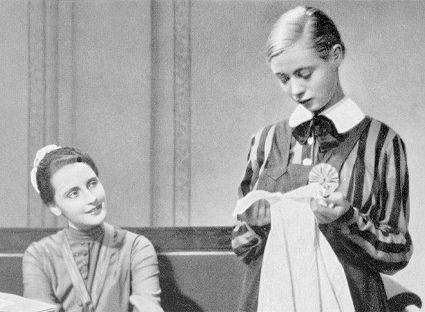
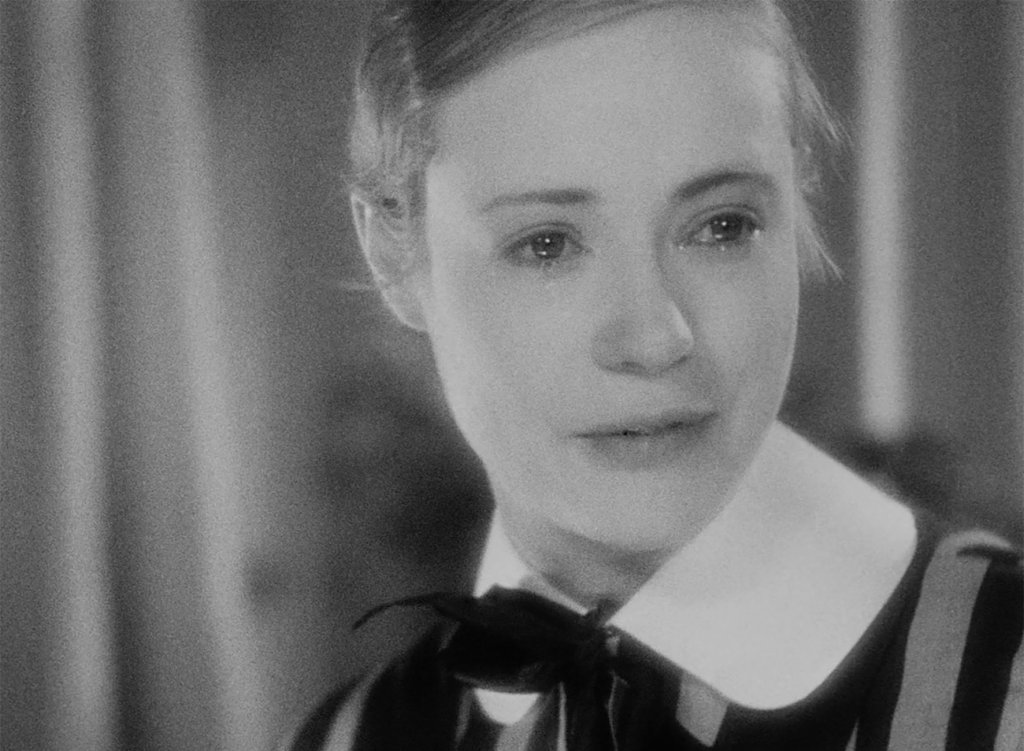
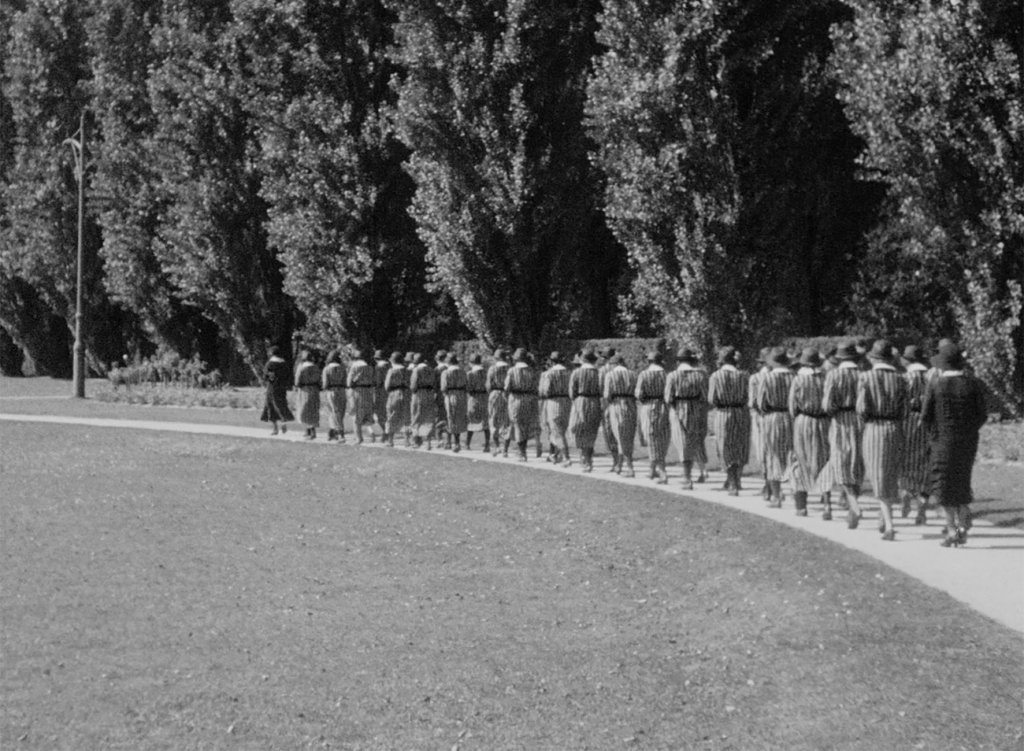
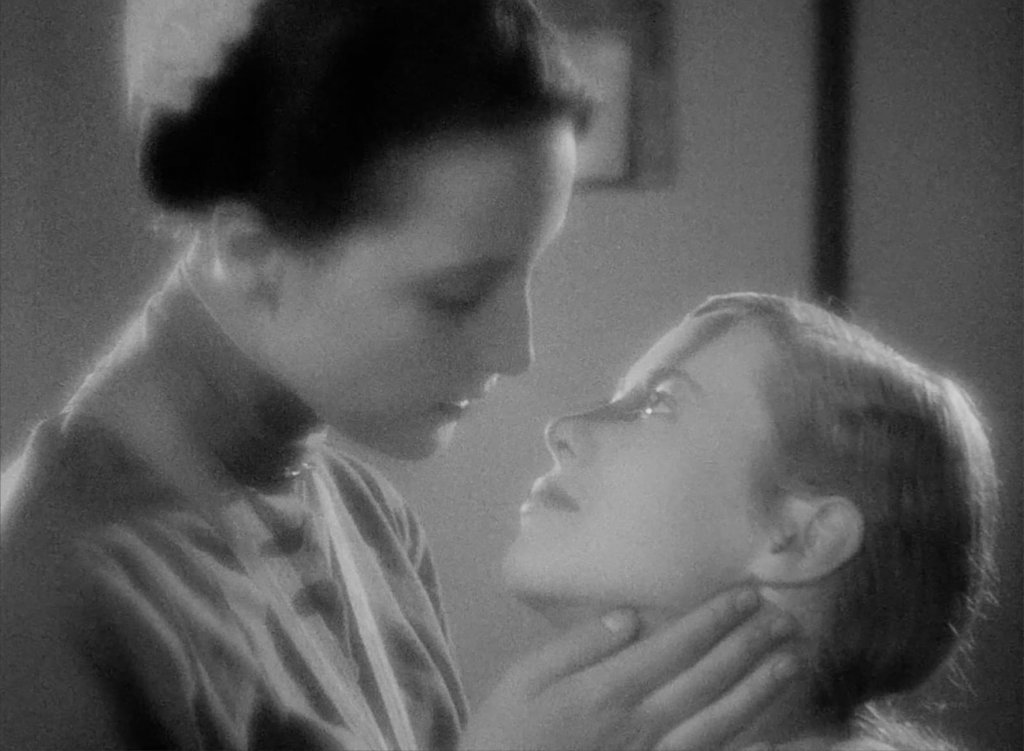
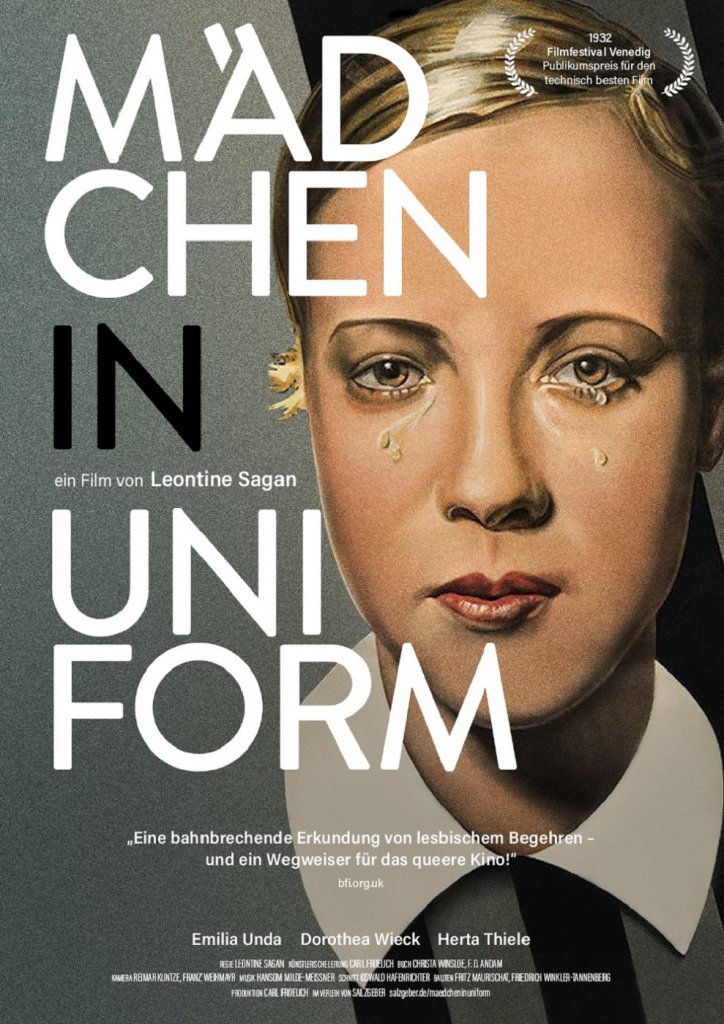
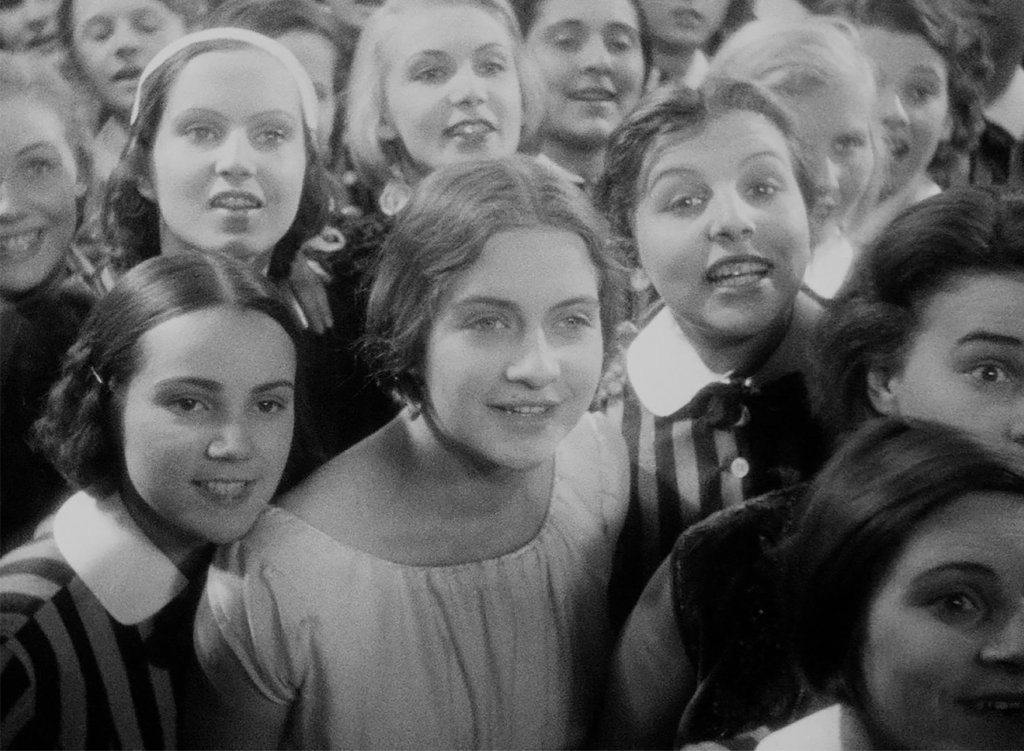
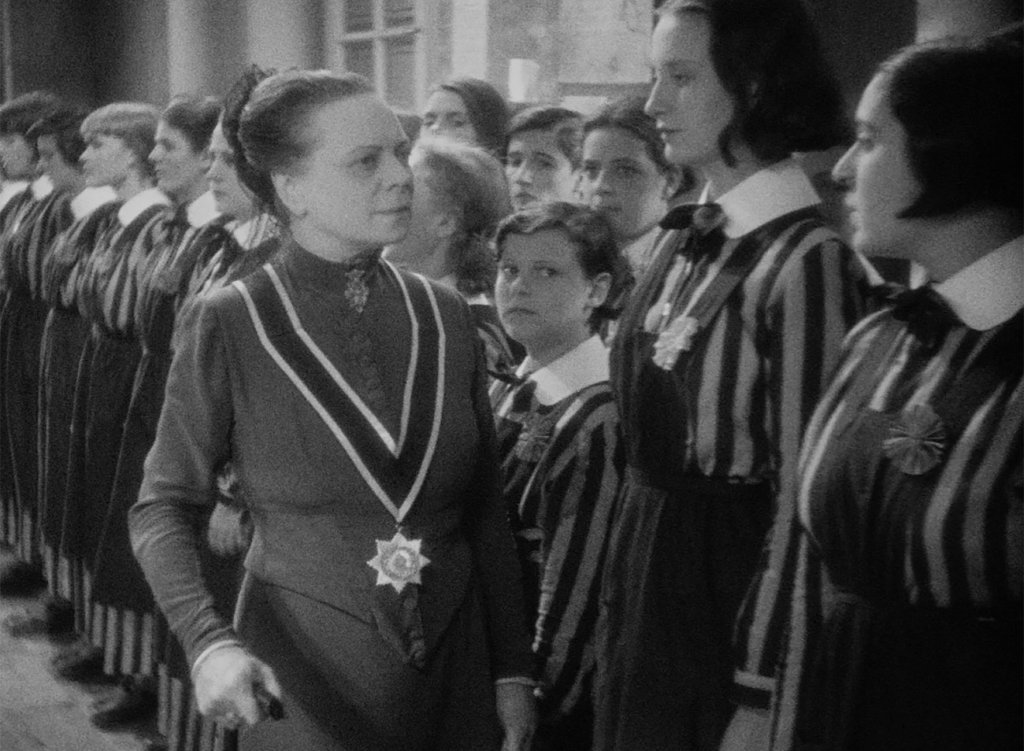
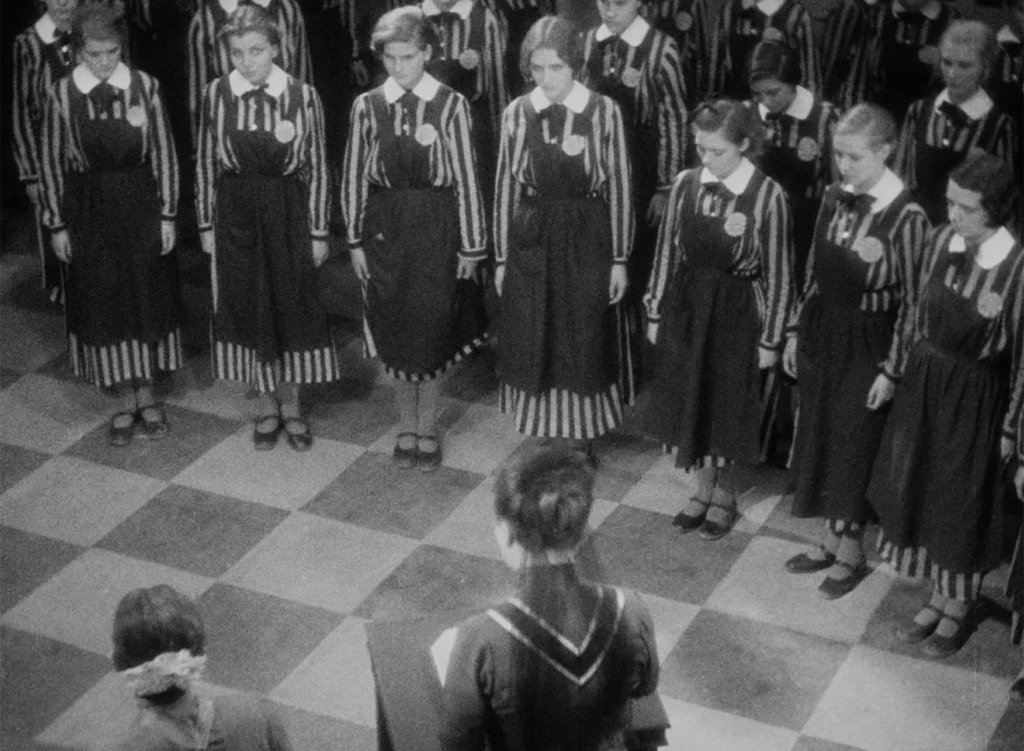
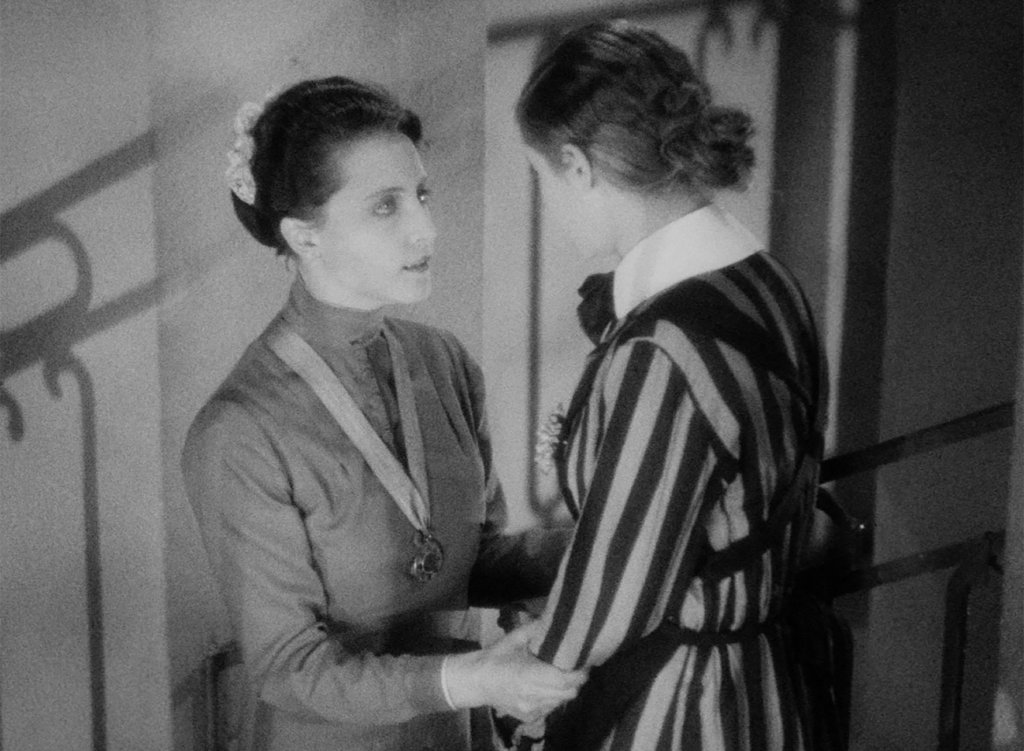
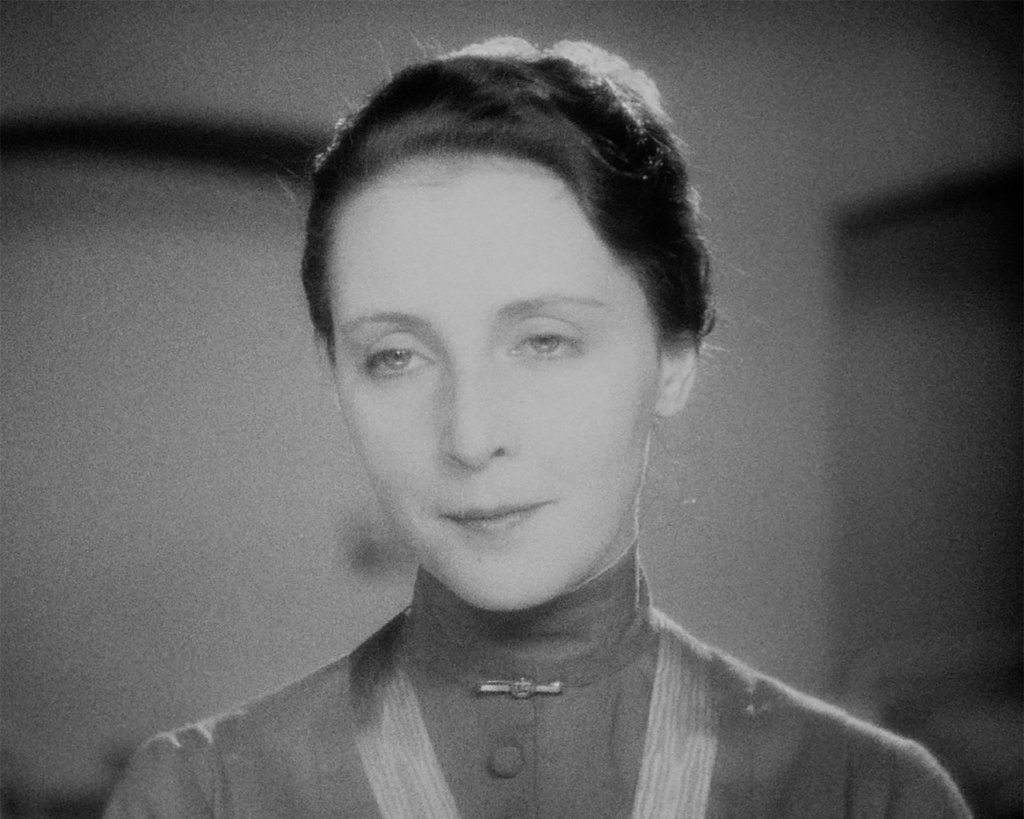
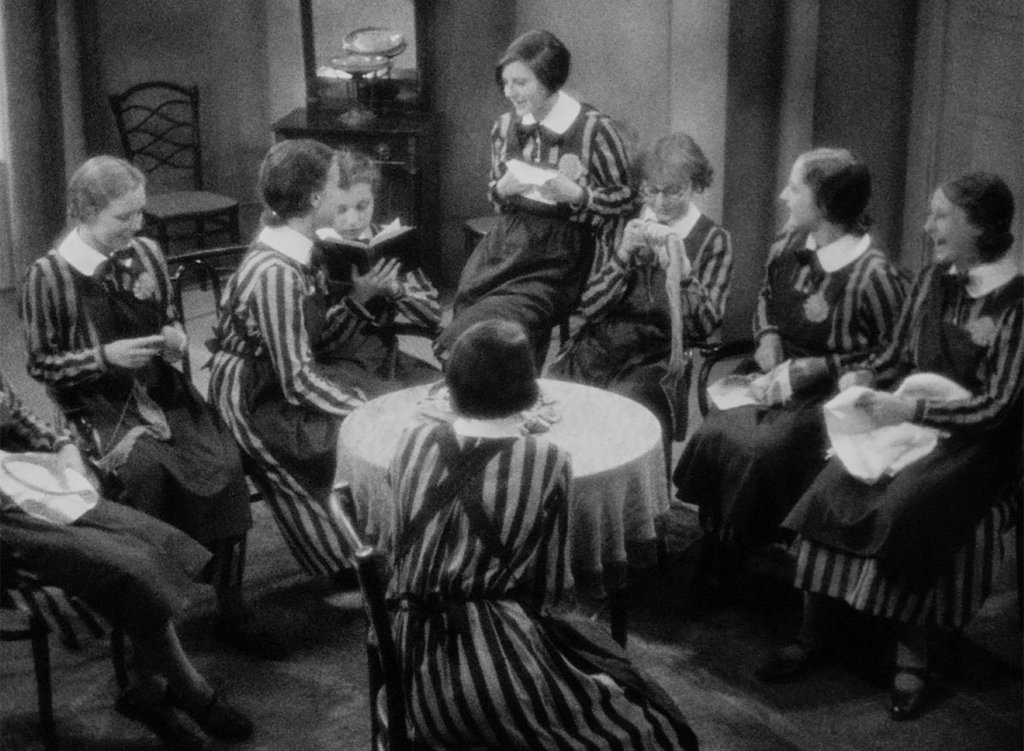
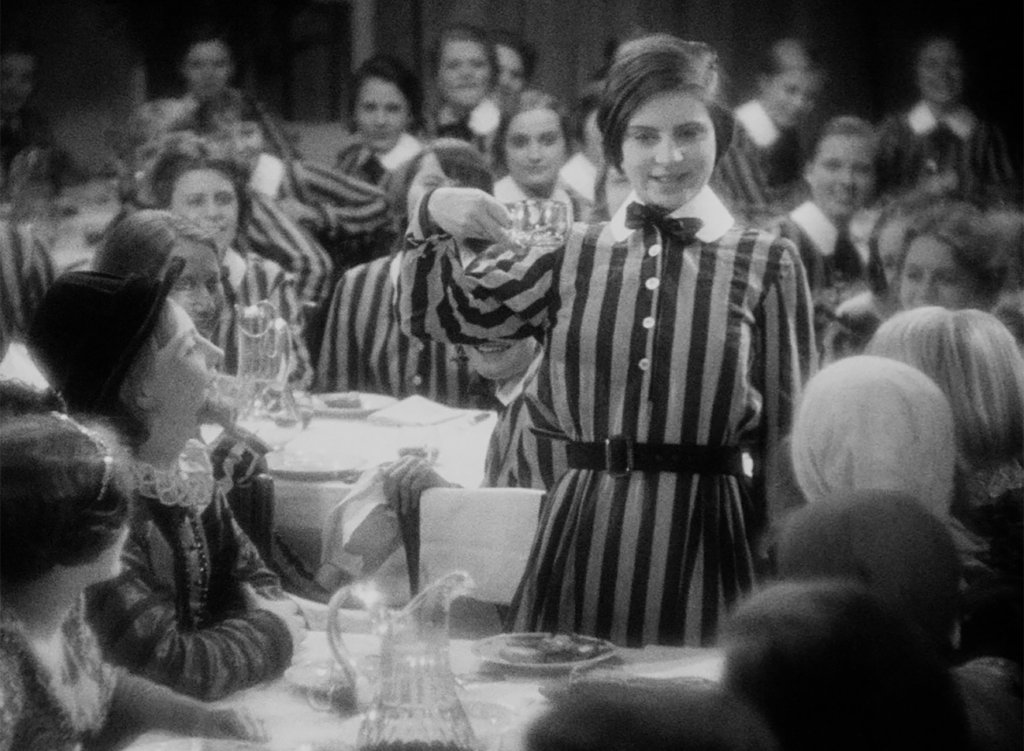
DE 1931, D: Leontine Sagan, A: Emilia Unda, Dorothea Wieck, Hertha Thiele, 96′, German OV, DCP
Conversation (in German) with Heide Schlüpmann & Karola Gramann
In film history, the name Hertha Thiele is primarily associated with two films: KUHLE WAMPE (DE 1932, D: Slatan Dudow, screenplay: Bertolt Brecht) and MÄDCHEN IN UNIFORM (DE 1931, D: Leontine Sagan, screenplay: Christa Winsloe). In the latter, the young actress with the “brittle, half-broken voice” (contemporary and film critic Lotte Eisner) plays the role of Manuela von Meinhardis, a sensitive aristocrat’s daughter and orphan who is sent to a Prussian girls’ boarding school. The headmistress’s educational ideal: “Soldiers’ daughters to become soldiers’ mothers!” Manuela’s only escape from her daily routine of drill and lack of human contact is her teacher, Miss von Bernburg, who opposes the headmistress’s rigour. When Manuela publicly confesses her love for Miss von Bernburg, it causes a scandal. While the headmistress wants to blame Miss von Bernburg for the supposed moral decline and declares Manuela a moral danger, Manuela threatens to perish in her despair.
On the occasion of our thematic focus (OUT) OF THE ARCHIVE: FEMINIST COUNTER-HISTORIES, we will discuss the film and its history of creation and reception with the two film scholars and curators Karola Gramann and Heide Schlüpmann. Special attention will be paid to the multifaceted biography of Hertha Thiele (born in Leipzig in 1908, died in East Berlin in 1984), which Schlüpman and Gramann researched in detail, including during an extensive interview that took place in the early 1980s.
At the time of its release, GIRLS IN UNIFORM was primarily interpreted as a critique of Prussian educational methods and as a coming-of-age story. Due to the film’s wide range of emotions and Thiele’s acting performances, it became a box office success throughout Europe, the USA and Japan. It was only later – after the film was made publicly available again in the late 1970s – that it not only became a cult lesbian film, but also underwent a differentiated analysis in the context of feminist film criticism. Hertha Thiele herself emigrated to Switzerland after her expulsion from the Reich Theatre and Film Chamber in 1937. After the end of the war, she returned to Germany for a few years, spending the 1950s and most of the 1960s in Switzerland, where she worked as a psychiatric nursing assistant. In 1966, she ventured to move again, this time to the GDR. There, she managed to establish herself at theatres, such as the Kellertheater in Leipzig, with guest performance contracts. From 1968 to 1979, she was a member of the German Television Theatre ensemble. In small roles, she portrayed “ordinary” women “from next door”.
Heide Schlüpmann (born 1943) is professor emeritus of film studies at Goethe University in Frankfurt am Main. She studied philosophy under Ernst Bloch and Theodor W. Adorno, among others. In the late 1970s, she was part of a working group on Nazi entertainment films. From 1991 to the late 1990s, she was co-editor of the magazine Frauen und Film (Women and Film). In 2000, she co-founded Kinothek Asta Nielsen e.V. with Karola Gramann, among others, marking the beginning of a collaborative curatorial activity that continues to this day.
Karola Gramann (born 1948) is a film scholar and film curator. Until 2022, she will be the artistic director of Kinothek Asta Nielsen e.V. in Frankfurt am Main. She translated Laura Mulvey’s key feminist text “Visual Pleasure and Narrative Cinema” into German. She contributed to the magazine Frauen und Film for several years. Main areas of work: film work by women in history and the present, early cinema and avant-garde, queer cinema. 1985–89: director of the International Short Film Festival Oberhausen.
| Sun 21.09 2025 | UT Connewitz |
| 2 PM | € 7,50 (6,50 reduced) Conversation (in German) with Heide Schlüpmann & Karola Gramann |
Trailer
ARCHIVE | Feministische Gegengeschichten
The “State Film Documentation” (SFD) was a production group under the authority of the State Film Archive of the GDR, which produced around three hundred “film documents” about the people and everyday life in the GDR between 1971 and 1986. ”Film document” meant that the aim was not to create films, but rather recorded footage and personal testimonials that documented life in a socialist society as truthfully as possible. However, the privilege of being able to capture an unvarnished picture of the reality of the GDR came at a high price: what the SFD editors filmed was not intended for public viewing and was produced solely for the archive. “The extraordinary perspective of an imaginary view of oneself from the future”, as Anne Barnert put it in Filme für die Zukunft – Die Staatliche Filmdokumentation am Filmarchiv der DDR (2015).
How fruitful is this legacy for a feminist perspective on archival work today? First comes the frustrating realisation that the vast majority of those portrayed and interviewed are men, and that women were often interviewed as wives, widows or assistants of prominent men. On closer inspection, however, many of the film documents feature women who represent a broad spectrum of possible lives and who reflect very differently on their social position.
Programme
Excerpts (in German OV, about 80′) from:
PROF. DR. HILDE BENJAMIN, GEB. AM 5.2.1902 IN BERNBURG
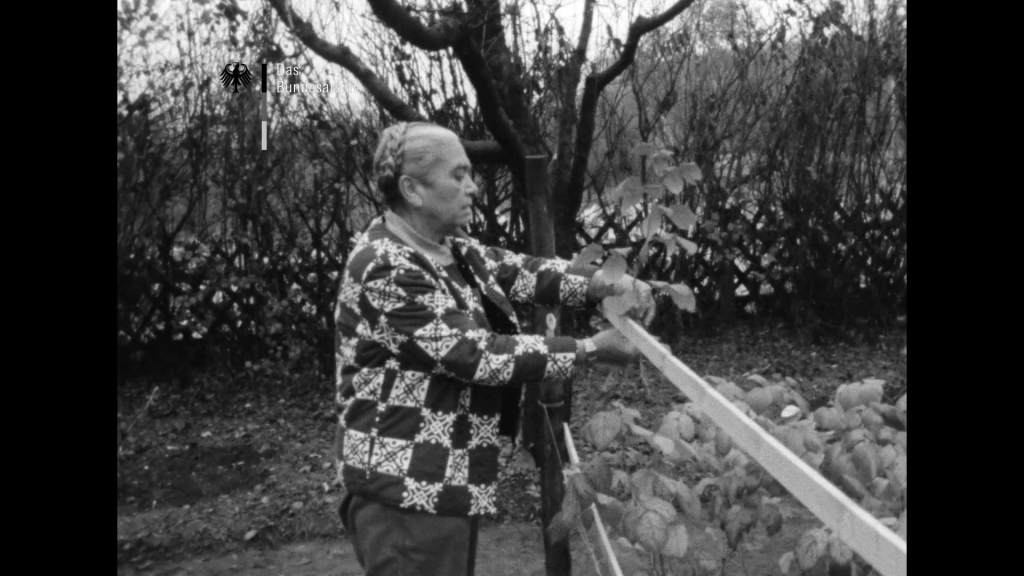
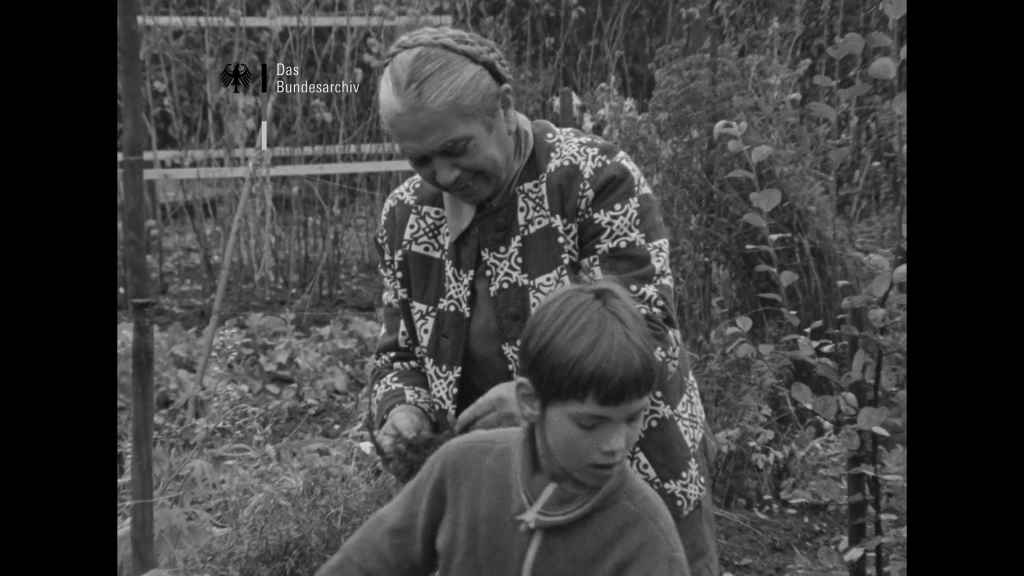
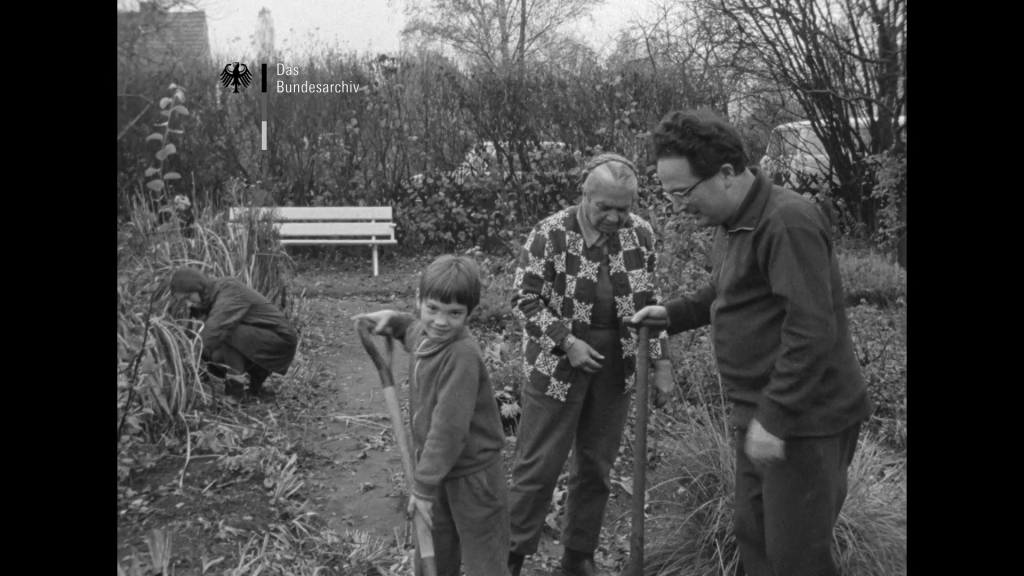
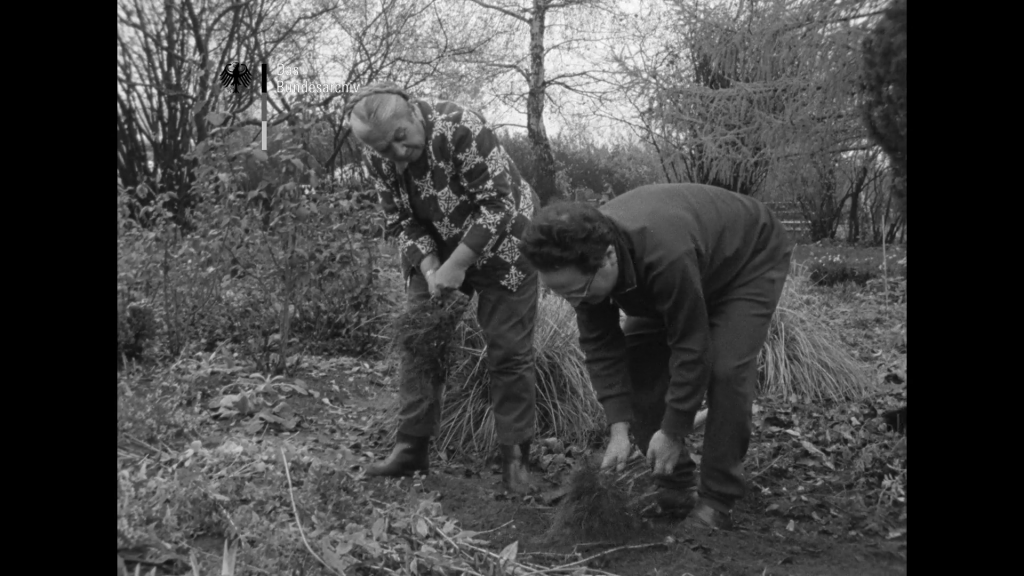
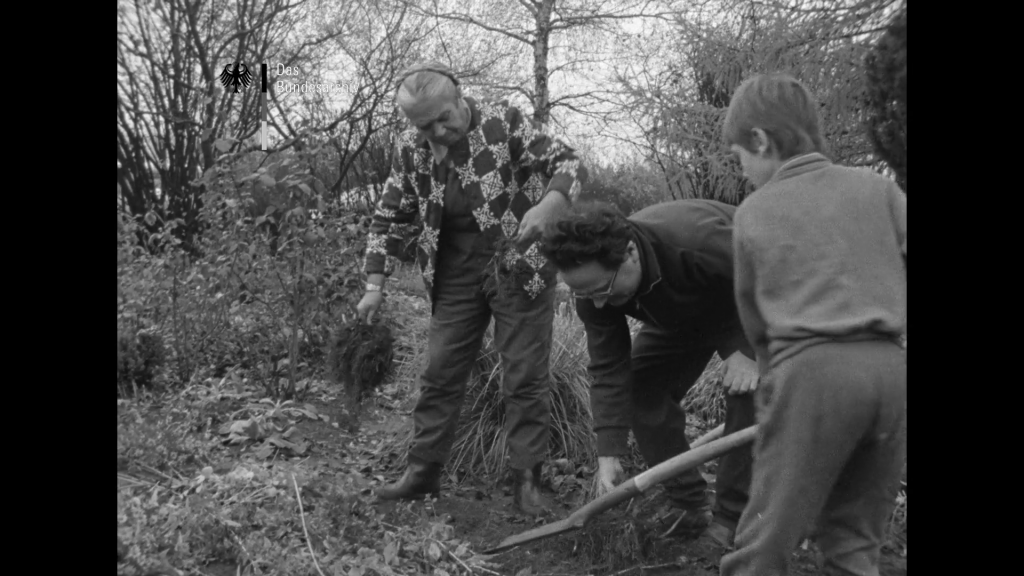
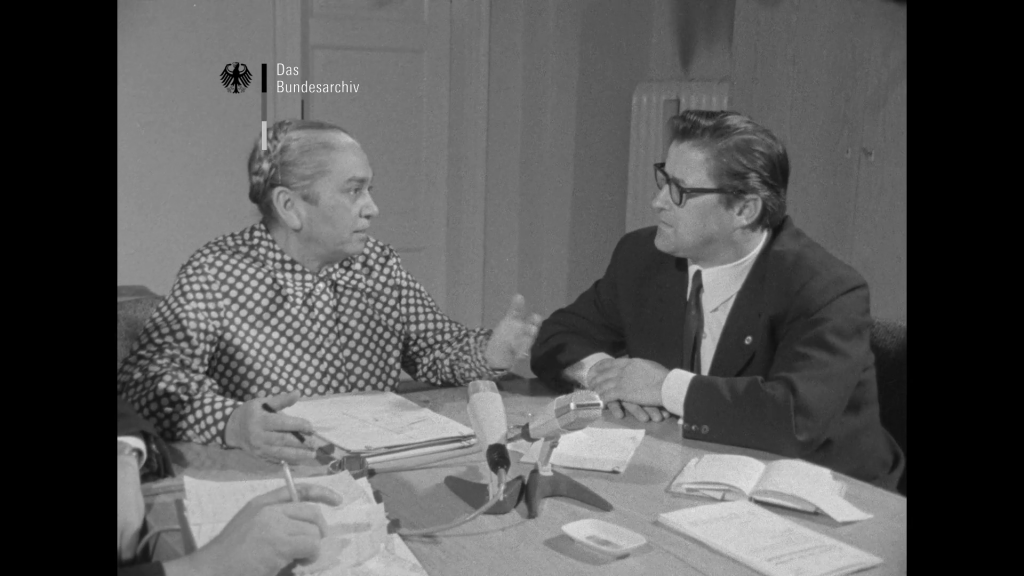
State Film Documentation, Editor: Gerd Barz, GDR 1972-74
The lawyer Hilde Benjamin is considered one of the most powerful women in the history of the GDR. From 1953 to 1967, she was Minister of Justice, making her the first woman in the world to hold such a position. Her life’s work, often described as “full of contradictions”, included draconian verdicts against “enemies of the state” and supporters of the “old” order, as well as a lifelong commitment to women’s equality, which culminated in 1965 in family laws that were perceived as extremely progressive.
HELMUT KRAATZ, PROF. DR. SC. MED. (GEB. 6.8.1902 IN WITTENBERG)
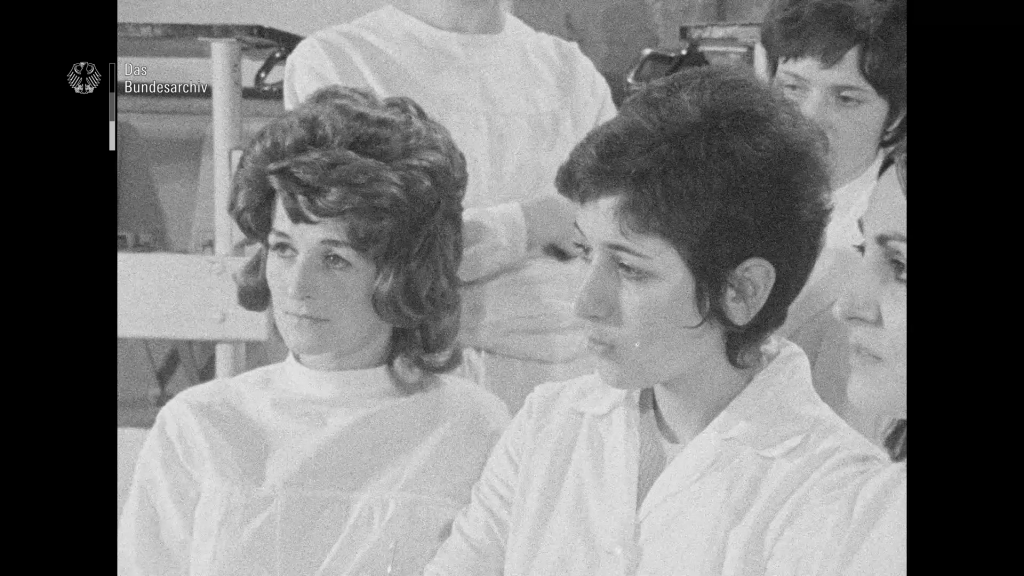
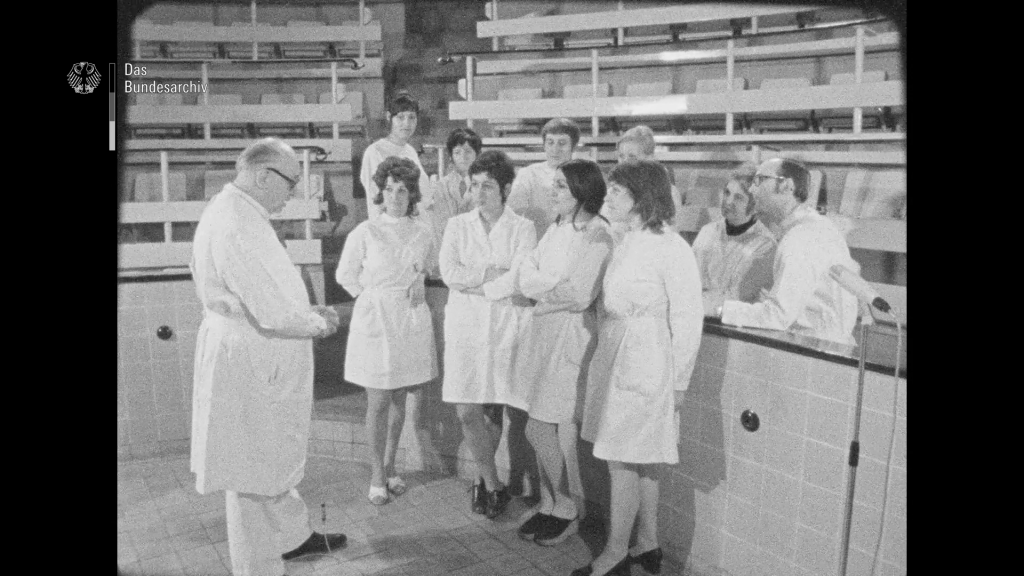
State Film Documentation, Editor: Dieter Harms, GDR 1972
Gynaecologist Helmut Kraatz was the long-time director of the Women’s Clinic at Berlin’s Charité University Hospital and a high-ranking member of various health policy committees. The SFD portrayed him after he had already retired. The central theme here is the very liberal abortion law that had come into force in the GDR in March 1972.
DOKUMENTE ZUR LEBENSWEISE. WOHNUNGSPROBLEME 1982/83 – DOKUMENT I
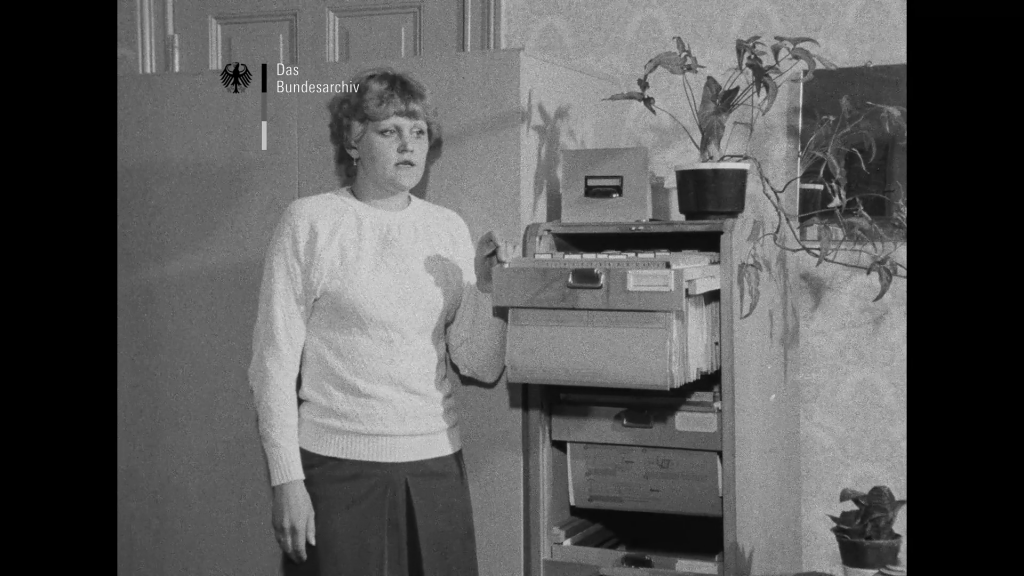
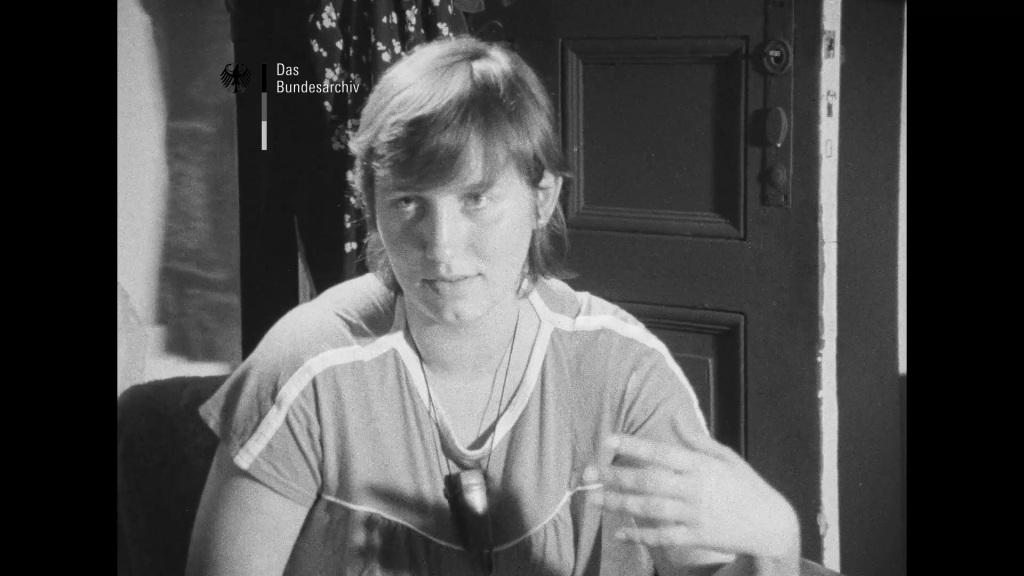
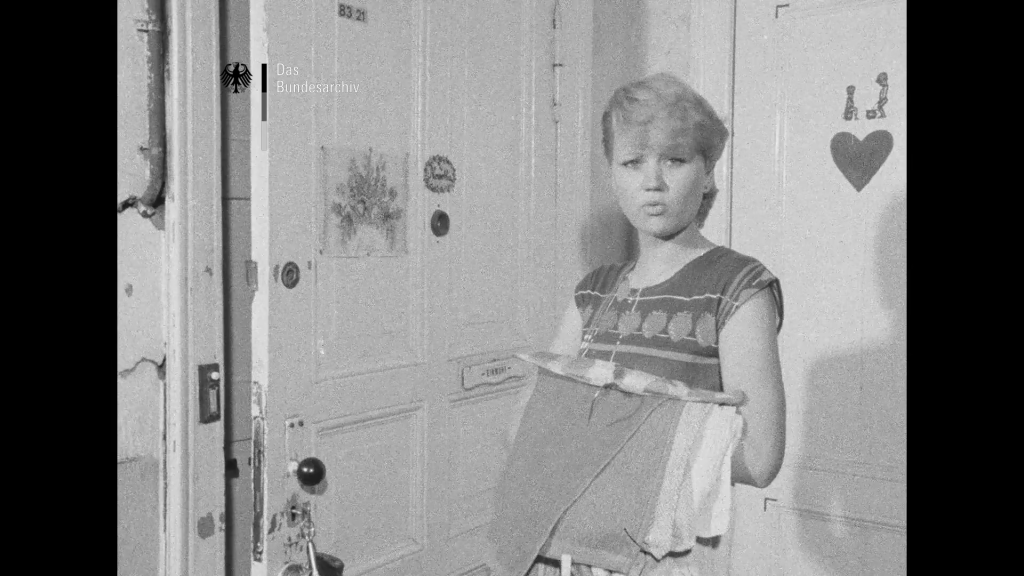
State Film Documentation, Editor: Gerd Barz, GDR 1982-83
The housing shortage in cities was one of the notorious problems of the GDR, though it was rarely acknowledged publicly. The dysfunctionality of the centralised allocation system forced many people to wait for years and resort to a variety of makeshift solutions. The selected document is about two young single mothers who illegally settled into blocked old apartments in Berlin-Prenzlauer Berg.
KLINIKUM BUCH – GESPRÄCHE IN EINER STRAHLENTHERAPEUTISCHEN KLINIK
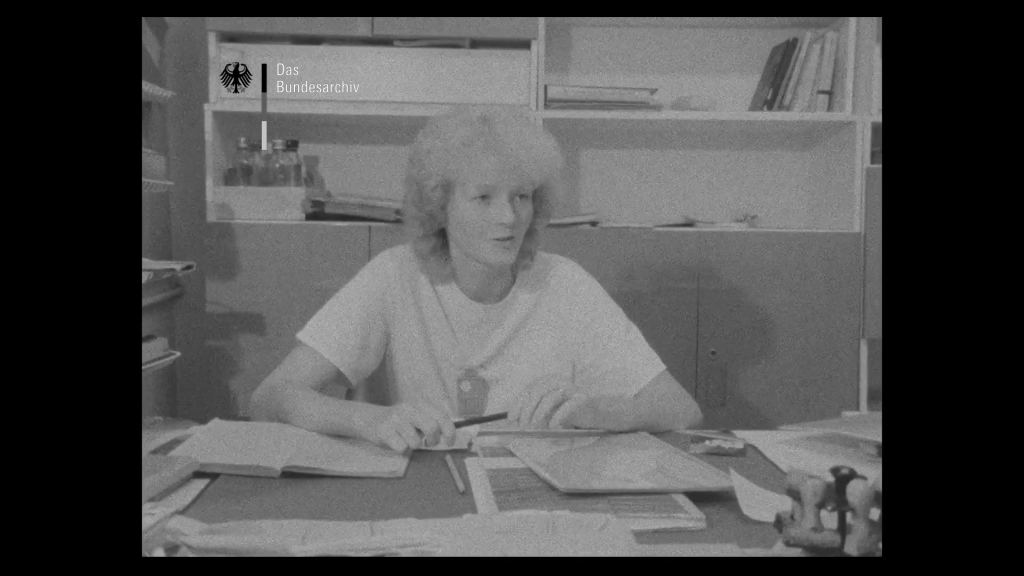
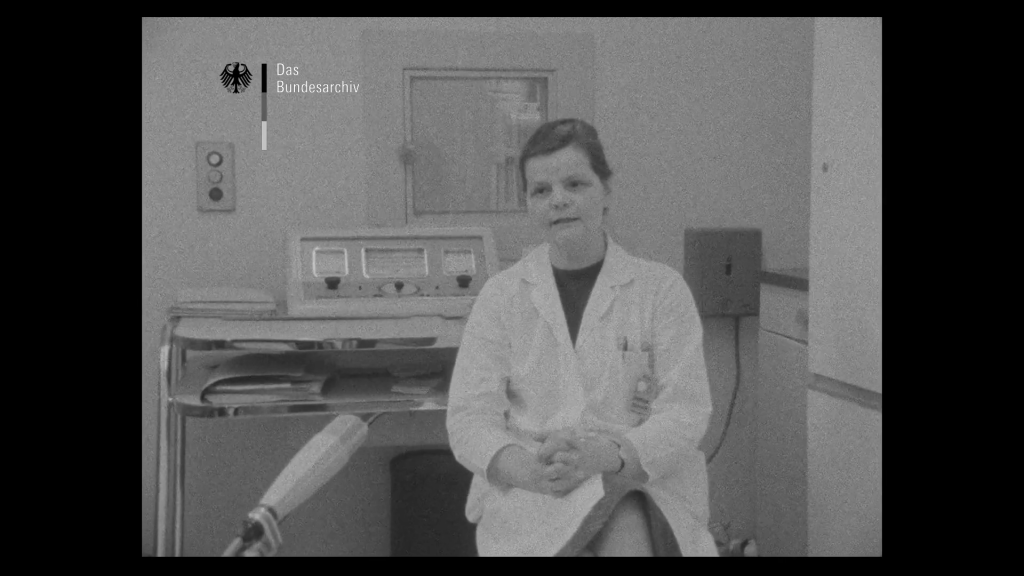
State Film Documentation, Editor: Hans Wintgen GDR 1984-85
In his only work for the SFD, documentary filmmaker Hans Wintgen conducted long and open conversations with the predominantly female staff of the radiotherapy clinic in Berlin-Buch, the GDR’s centre for cancer treatment and palliative medicine. The focus is on dealing with the dying, for which doctors and nurses have so far received insufficient training.
In conversation in between the film excerpts: film scholars Anne Barnert (Jena) and Borjana Gaković (Berlin). Selection and moderation: Tobias Hering (Berlin)
| Sa 20 Sept 2025 | UT Connewitz |
| 8 PM | € 7,50 (6,50 reduced) |
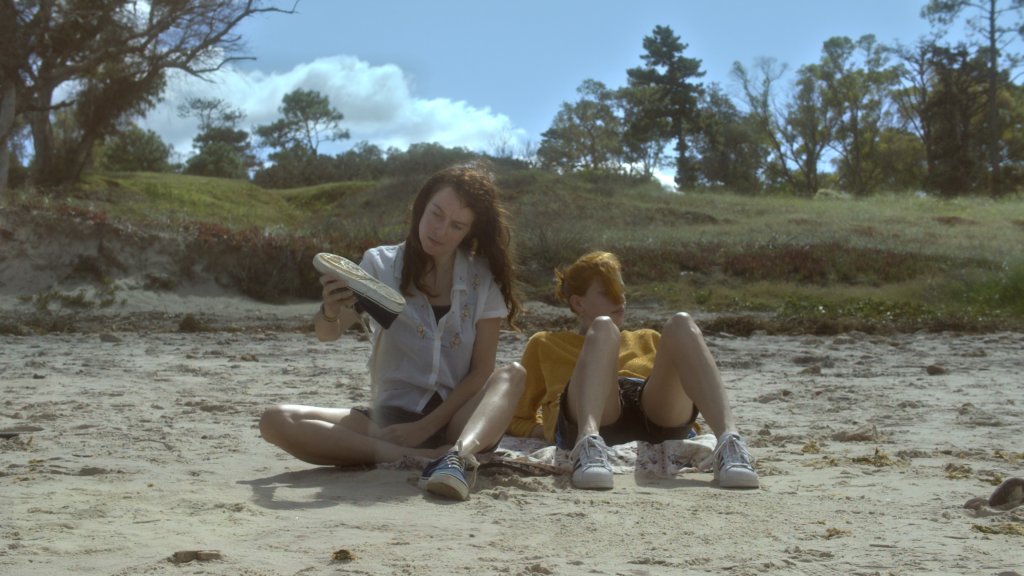
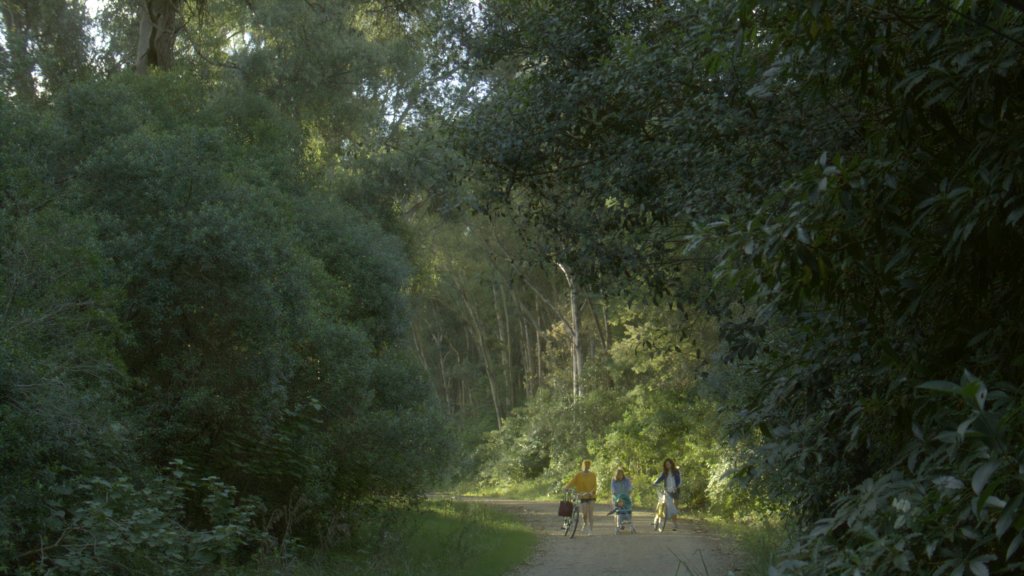
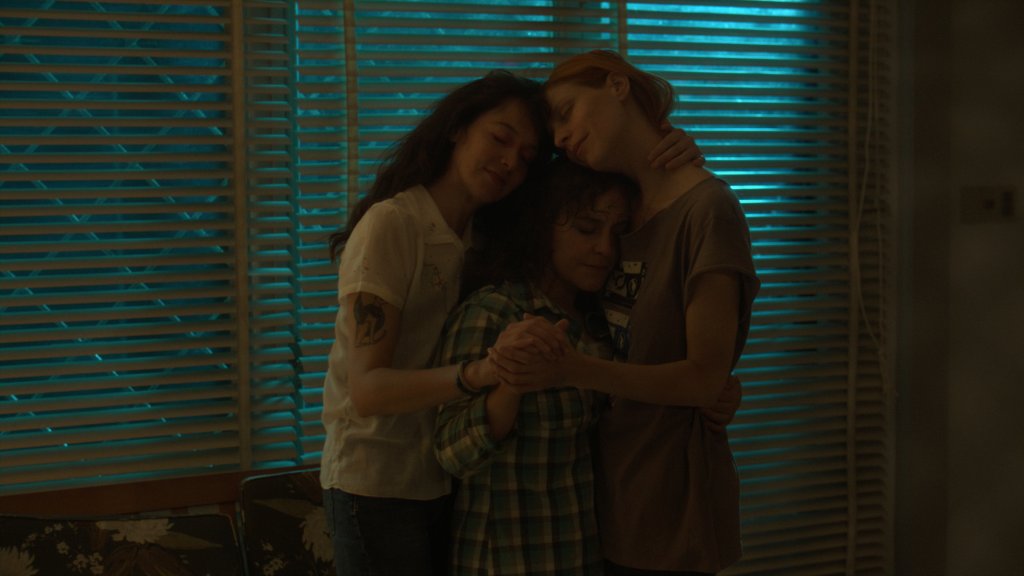
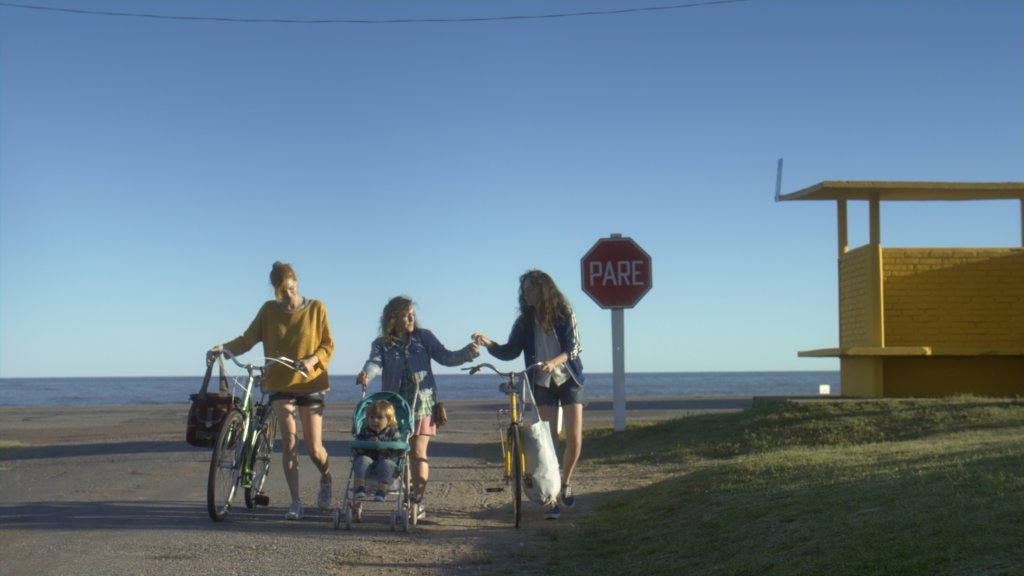
UY 2024, D: Ana Guevara, Leticia Jorge, A: Chiara Hourcade, Victoria Jorge, Eva Dans, 74‘, OV with English subtitles, DCP
39-year-old Adela is at the funeral of her best friend Elena – and feels left out, both inside and out. While children play and people mourn around her, she remains empty and emotionally frozen. Consumed by shock and imminent emptiness, Adela becomes an unexpected time traveller. She gets on a bus and finds herself ten years in the past: a weekend with Elena and her friend Luci in the old beach house. Three women, a baby, music, books, sun, conversations. It is a magical-realistic space full of life, fleeting and familiar at the same time. With a keen sense of atmosphere and emotional nuances, the film tells of what remains when a person leaves – and of the power not only to preserve memories, but to inhabit them anew.
| Sat 20 Sept 2025 | UT Connewitz |
| 6 PM | € 7,50 (6,50 reduced) |
Trailer





